
Market Analysis (21)
Romania
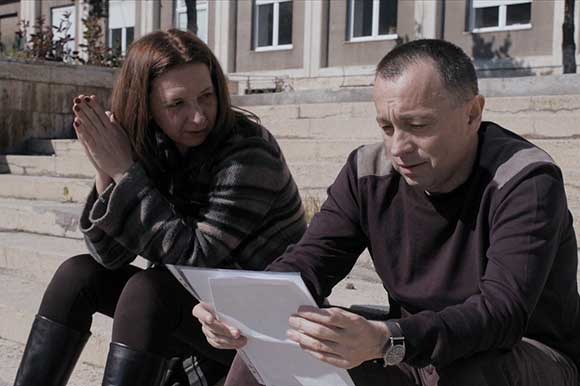 MARKET ANALYSIS 2020
MARKET ANALYSIS 2020
BUCHAREST: Romania has been seriously affected by the Coronavirus pandemic, which shut down film production and cinemas for several months. The closing of cinemas and the decrease of TV advertisement resulted in a significant decrease of the amount of money for the national Film Fund and, as a consequence, no production grants were allotted for 2020 and most likely won't be allotted for 2021 as well.
Although officially re-launched in January 2020, when it was taken over by the Ministry of Economy, the cash rebate scheme didn't function in 2020, and at the end of 2020 most of the projects already shot since the scheme opened in 2018 were waiting for the rebate.
On the bright side, 2020 was the best year for Romanian documentaries, with Alexander Nanau's collective / colectiv leading the pack. collective is Romania's bid at the 2021 Academy Awards in the Best International Film category, and it was also submitted to the Best Documentary Feature category. collective was also awarded 2020 European Documentary at the European Film Awards.
For the first time, two Romanian documentaries were nominated at the European Film Awards in the European Documentary category. The second nominee, Acasă, My Home by Radu Ciorniciuc, received the Cinematography Award in the World Cinema Documentary competition at the Sundance Film Festival 2020.
PRODUCTION
In March 2020 Romanian authorities decided to shut down all events (public or private) with over 100 persons in closed premises and also to shut down cinemas. Film and audiovisual production resumed on 30 May 2020 and few producers were able to re-schedule their shootings. Most of them are supported by the Romanian Film Centre (CNC).
Among them is Ada Solomon, who is producing two feature films shot in 2020 – Radu Jude's new feature film Bad Luck Banging or Loony Porn (aka Sleepwalkers) and Ștefan Constantinescu's debut feature Man-Dog / Om-câine.
Bad Luck Banging or Loony Porn, which evaluates the disaster caused by an amateur porno clip that a young secondary-school teacher posts on the internet, is a coproduction between Romania's 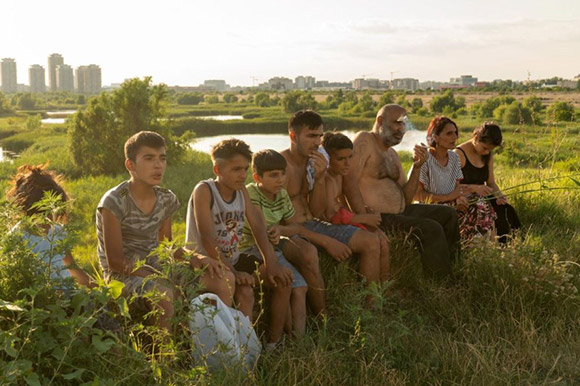 microFILM and Luxembourg's Paul Thiltges Distributions, Czech Republic's endorfilm and Croatia's Kinorama.
microFILM and Luxembourg's Paul Thiltges Distributions, Czech Republic's endorfilm and Croatia's Kinorama.
The film was shot in August and September 2020, and the script as well as the production have been changed to accommodate the pandemic restrictions.
Romanian-born Sweden-based film director and visual artist Ștefan Constantinescu started the shooting on Man-Dog on 10 August 2020.
The film starring Bogdan Dumitrache and Ofelia Popii is a story about love and exile happening during the COVID-19 pandemic. Man-Dog / Om-câine is produced by microFILM (Romania), KLAS Film (Bulgaria), Doppelganger (Sweden) and Pandora Film (Germany), in association with nomada.solo (Romania) and Visual Walkabout (Romania), and in coproduction with HiFilm Productions (Romania), Film i Väst (Sweden), Shoot&Post (Sweden), Auditory (Sweden).
Radu Muntean shot his seventh feature film Întregalde in November-December 2020. Written by the same team who wrote all Muntean's films (Razvan Radulescu, Alex Baciu, Radu Muntean), the film is produced again by Multi Media Est and follows three humanitarians whose mission in a remote village in the Apuseni Mountains goes astray.
Anca Damian was also in production in 2020, with her new long animated film The Island / Insula, produced by herself through Aparte Film in coproduction with France's Komadoli Amopix and Belgium's Take Five and Minds Meet.
In 2020 Gabriel Achim shot his third feature film, Snowing Darkness / Uneori ninge cu zapada, alteori cu intuneric, a Romanian coproduction between Mandragora and Iadasarecasa.
Daniel Sandu finished shooting The Father Who Moves Mountains / Tata mută munții at the beginning of 2020. Sandu's sophomore feature is produced by Cristian Mungiu's company Mobra Films in coproduction with Filmgate Films and Film i Vast (Sweden), and it is currently in postproduction.
Emanuel Pârvu shot his sophomore feature Mikado / Marocco from 26 July to 23 August 2020. The main character of the film is played by Șerban Pavlu, who also starred in Pârvu's debut feature Meda or The Not So Bright Side of Things / Meda sau Partea nu prea fericită a lucrurilor (FamArt, 2017), which won the Hearts of Sarajevo for Best Director and Best Actor. The film is produced FamArt Association in coproduction with Bogdan George Apetri as well as with Natura Party.
Romanian director Octav Chelaru finished shooting his debut feature Balaur on 10 September 2020. The film was shot in Romania as a Romanian/German/Serbian coproduction between Romania's deFilm, Germany's 42film and Serbia's EED Productions. The film follows a 38-year-old religion teacher and wife of the local priest, who sleeps with a 16- year-old problem student.
Radu Ciorniciuc was in production with his second documentary in 2020. Tata, which is co-directed with Lina Vdovîi (the writer from Acasă My Home) and produced again by Romania's Manifest Film. This personal story of Lina Vdovîi, who is trying to reconnect with her father, is set for release in 2023.
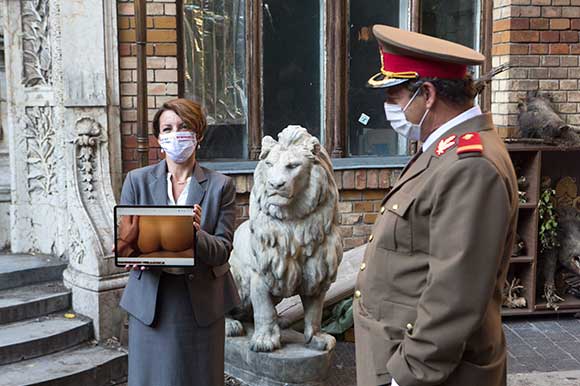 The DoP/producer/director Liviu Mărghidan shot his third feature film as a director from 1 July to 15 August 2020. Refuge / Refugiu (working title) is an adventure drama whose shooting took place at an altitude ranging from 1,600 to 2,000 metres with two children in the cast. The film follows a couple of middle-class divorcees who decide to go on a mountain climb together with their two children, and it is produced by Scharf Film Production (a company founded by Liviu Mărghidan).
The DoP/producer/director Liviu Mărghidan shot his third feature film as a director from 1 July to 15 August 2020. Refuge / Refugiu (working title) is an adventure drama whose shooting took place at an altitude ranging from 1,600 to 2,000 metres with two children in the cast. The film follows a couple of middle-class divorcees who decide to go on a mountain climb together with their two children, and it is produced by Scharf Film Production (a company founded by Liviu Mărghidan).
Writer/director Ioana Mischie was in production with Tangible Utopias in 2020. This virtual reality project was selected for Cannes XR, which took place 22 – 26 June 2020 online. The project is produced by Storyscapes, a Romanian association focusing on transmedia concepts, in collaboration with Studioset and See Three.
In 2020 Andrei Dăscălescu worked on the editing of on his new project. Videograms of a Pandemic / Videograme dintr-o pandemie is documenting the life of people during the COVID-19 isolation through video-diaries. Dăscălescu is producing through Filmlab.
Among the films in postproduction in 2020 was Andrei Hutuleac's debut feature #dogpoopgirl, a Romanian coproduction between DaKino Productions and Diud Films, which was shot at the end of 2019.
Few international productions were shot in Romania in 2020 after the ease of restrictions.
The eight-part series Around the World in 80 Days, a European coproduction directed by Steve Barron and starring David Tennant, started shooting in Romania in October 2020 with Castel Film Studio providing services.
Around the World in 80 Days is a Slim Film + Television and Federation coproduction for the European Alliance formed by France Télévisions, ZDF and RAI, with additional coproduction partners, Peu Communications in South Africa, MASTERPIECE in the USA, Be-FILMS and RTBF in Belgium and associate producer Daro Film. The filming in Romania as well as in South Africa spanned across five months.
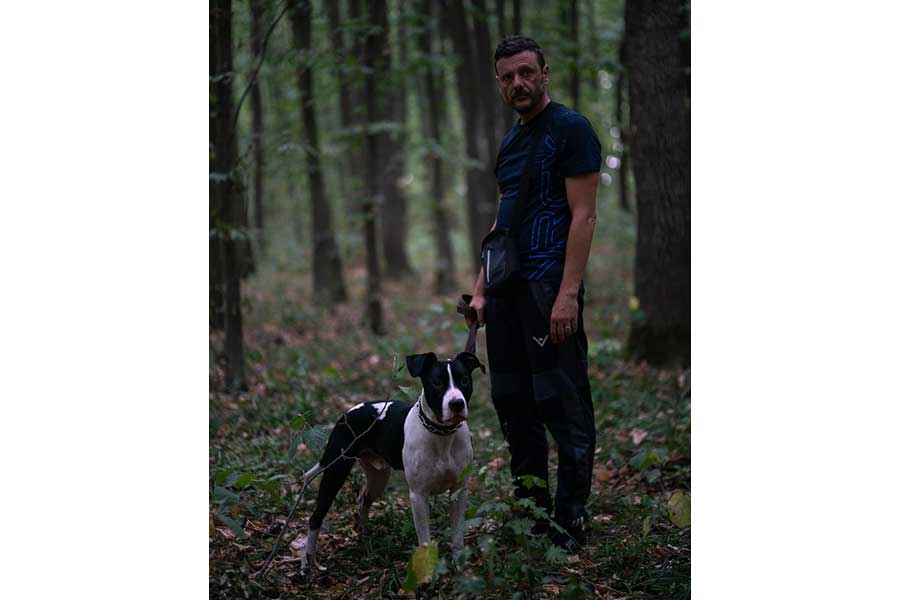 The Greek/French/Romanian coproduction Broadway directed by Christos Massalas completed filming in Romania on 2 November 2020. Athens-based Neda Film is producing in coproduction with France's Blue Monday Productions and Romania's Digital Cube. This debut feature participated in the 2019 Cannes Cinéfondation L'Atelier. The film was shot in Athens starting in July 2020 and the postproduction takes place in Romania at Avanpost, as well as in France.
The Greek/French/Romanian coproduction Broadway directed by Christos Massalas completed filming in Romania on 2 November 2020. Athens-based Neda Film is producing in coproduction with France's Blue Monday Productions and Romania's Digital Cube. This debut feature participated in the 2019 Cannes Cinéfondation L'Atelier. The film was shot in Athens starting in July 2020 and the postproduction takes place in Romania at Avanpost, as well as in France.
COVID GOVERNMENT SUPPORT
In March 2020 more than 12,200 independent cultural workers, including film workers (directors, actors, DoPs, editors, etc.) signed an appeal to the Government and several ministries, asking for measures of support in the difficult situation caused by the COVID-19 pandemic.
The professionals called for measures of social protection including, among others, health insurance till 31 December 2020 for those who didn't have it; lump sums for independent artists, PFAs and LLCs facing difficulties, from three to six months; temporary exemption from taxes on revenues from copyright contracts and service contracts for cultural activities till 31 December 2020.
Cultural workers were also asking the Government, the Ministry of Culture and the Ministry of Labour and Social Protection to adopt the Artist Status, which would approve the cultural workers’ activity, so that they could benefit from health insurance, pensions and welfare.
On 26 March 2020 the Romanian Government decided to compensate with 75% from the national gross salary the persons who support themselves exclusively from copyright and related rights, as well as the authorised persons, liberal professions, individual and family businesses and persons remunerated through service contracts.
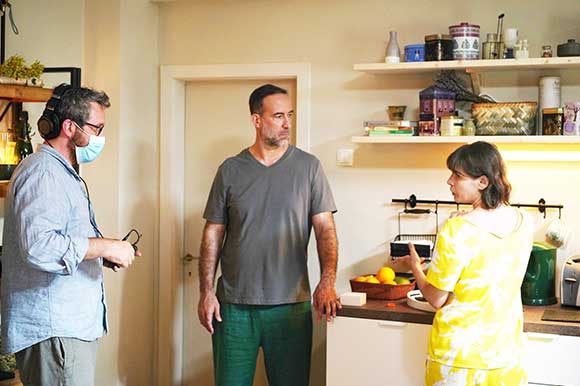 In November 2020, the Romanian Government announced its intention to distribute 100 m EUR for the culture sector, including cinema, with the requirement that all the applicants should register by 9 December 2020 in the Cultural Sector Register, the creative industries map launched by the Ministry of Culture in 2020.
In November 2020, the Romanian Government announced its intention to distribute 100 m EUR for the culture sector, including cinema, with the requirement that all the applicants should register by 9 December 2020 in the Cultural Sector Register, the creative industries map launched by the Ministry of Culture in 2020.
Another requirement was that the applicants (companies which were active in the last two years, but not independent or freelance artists) should add 20 percent to the 80 percent provided by the grant to their application projects.
Micro-grants of 4,000 EUR for entities that didn't sell tickets for their activities in 2019, as well as variable grants varying from 7 to 50 percent from the gross revenues from the tickets sold in 2019, were available. No grant should exceed 800,000 EUR.
The grants were available for performing arts, visual arts including cinema, audiovisual, publishing, heritage and cultural education. The grants scheme is planned to be operational at the beginning of 2021.
In April 2020, the Romanian Film Development Association (ADFR) launched a programme supporting Romanian independent emerging film artists affected by the COVID-19 pandemic. #ADFR Survival allocated micro-grants totalling 3,000 EUR to emerging talents of 23 to 35 years from the camera, directing, screenwriting, art direction and costume departments, as well as independent actors aged 22-40 with at least one film credit in the last 12 months. Three micro-grants of 500 EUR each were allotted in both cases.
DISTRIBUTION
A total of 77 films, including 19 domestic productions (of which 17 supported by the CNC), were released in cinemas in 2020, compared to 206 films released in 2019, of which 29 were domestic films (including minority coproductions).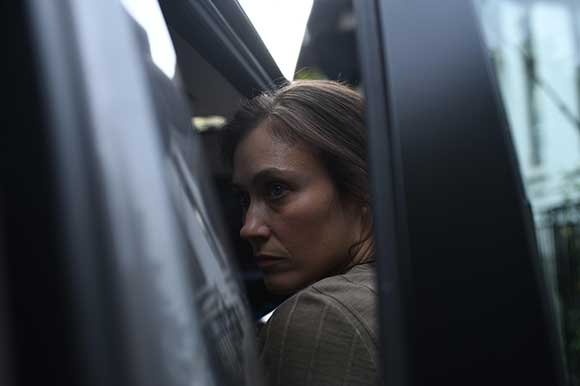
Among the domestic productions theatrically released in 2020 are: Miami Bici directed by Jesús del Cerro, produced by Studio Indie Productions and Watch Me Productions, and distributed by Vertical Entertainment, the documentary collective / colectiv directed by Alexander Nanau, produced by Alexander Nanau Production in coproduction with Samsa Film, HBO Europe, and distributed by Bad Unicorn, the documentary 30 Years and 15 minutes / 30 de ani si 15 minute directed by Ștefan Mandachi, produced by Mandachi Films and distributed by Follow Art Distribution, Legacy / Urma directed by Dorian Boguță, produced by Hai-Film Entertainment, Mandragora, Actoriedefilm.ro, and distributed by Transilvania Film, Uppercase Print / Tipografic majuscul directed by Radu Jude, produced by microFILM in coproduction with the Romanian Television (TVR), Hi Film Productions and in association with nomada.solo, and released by Hi Film Productions, the documentary Superhombre directed by Mircea Gherase and Lucian Mircu, produced by Asociația Marele Ecran and distributed by Domestic Film, the documentary Acasă, My Home directed by Radu Ciorniciuc, produced by Romania’s Manifest Film in coproduction with HBO Europe, Finland's Corso Film and Germany's Kino Company, and distributed by Manifest Film, the documentary Teach / Profu' directed by Alex Brendea, produced by Luna Film and distributed by Transilvania Film, Ivana the Terrible / Ivana cea Groaznică directed by Ivana Mladenovic, produced by Produced by microFILM, Dunav 84 in coproduction with the Romanian Television, nomada.solo, Verde Stop Arena, and distributed by HiFilm Productions, the documentary Everything Will Not Be Fine / Totul nu va fi bine directed by Adrian Pârvu and Helena Maksyom, produced by Hi Film Productions in coproduction with microFILM, Tato Film, and distributed by microFILM, 5 Minutes Too Late / 5 minute directed by Dan Chișu, produced by Domestic Film, DaKINO Production, and distributed by Domestic Film, and Love 2. America / Dragoste 2. America directed by Florin Șerban, produced by Fantascope Films, The East Company, Correct Media, and distributed by Fantascope Films.
Six from the above-mentioned titles were released before the pandemic restrictions.
The overall chart is topped by Miami Bici with 553,941 admissions, followed by Bad Boys for Life with 419,987 admissions and 5Gang: Un altfel de Craciun with 176,709 admissions (according to the official statistics issued by the Romanian Film Centre in the spring of 2021).

The domestic admissions top ten is topped by Miami Bici with 553,941 admissions, followed by 5Gang: Un altfel de Craciun with 176,709 admissions, collective with 21,341 admissions, Maria Queen of Romania with 12,902 admissions, 30 Years and 15 Minutes with 6,163 admissions, The Oak by Lucian Pintilie (a digitalised version of the 1992 film distributed by Transilvania Film) with 4,526 admissions, The Cardinal with 3,540 admissions, Uppercase Print with 3,208 admissions, Superhombre with 3,200 admissions and Legacy with 2,853 admissions.
Jesús del Cerro’s Miami Bici, a comedy about two Romanians looking for fun but finding trouble in Miami, Florida, had 368,303 admissions and cashed in 1,593,451 EUR / 7,663,883 RON in two weeks, according to Cinemagia.ro. The film was released on 21 February 2020 by Vertical Entertainment, a leading company that usually distributes Hollywood titles.
Alexander Nanau's documentary collective / colectiv, which was released on 28 February 2020, had 15,366 admissions and cashed in 54,326 EUR / 261,289 RON gross in its first weekend (including several avant-premieres), but the closing of cinemas prevented it to be seen by a larger audience. It was released on HBO afterwards.
Other titles have postponed their release from 2020 to 2021. The list includes Cristi Puiu's Malmkrog, which was produced by Romania’s Mandragora in coproduction with iadasarecasa (Romania), SENSE Production (Serbia), Cinnamon Films (Serbia), Film i Väst (Sweden), Doppelganger (Sweden), Bord Cadre Films (Switzerland), Produkcija 2006 Sarajevo (Bosnia and Herzegovina) and Sisters and Brothers Mitevski (North Macedonia);So, What’s Freedom? / Și atunci... ce e libertatea?, the sophomore feature by the Romanian-born US based writer/director Andrei Zincă, which was produced by Romania’s Tică Trade and Andrei Zincă through the US company Double 4; And They May Be Still Alive Today / Și poate mai trăiesc și azi, the sophomore feature by Tudor Cristian Jurgiu, which was produced by Romania’s Libra Film Productions in coproduction with the Greek Graal SA; WOOD, an environmental documentary thriller about illegal logging in Romania, Peru, Russia and China, directed by Monica Lăzurean-Gorgan, Michaela Kirst and Ebba Sinzinger, and produced by 4 Proof Film in coproduction with Austria’s WildArt Film and Germany’s Film Tank; as well as Begin / Început, the sophomore feature by Răzvan Săvescu, which was produced by Scharf Film Production.
Alexander Nanau's acclaimed documentary collective was released in US theatres and on-demand by Magnolia Pictures and Participant on 20 November 2020. After its world premiere in the Official Selection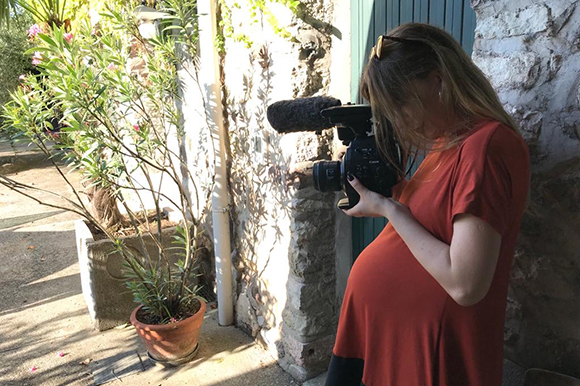 – Out of Competition at the Venice International Film Festival of the Biennale di Venezia 2019, collective was sold by Cinephile to North America, France, the UK, the Netherlands, Switzerland, Germany, Australia and New Zealand.
– Out of Competition at the Venice International Film Festival of the Biennale di Venezia 2019, collective was sold by Cinephile to North America, France, the UK, the Netherlands, Switzerland, Germany, Australia and New Zealand.
Acasă My Home, the first documentary by the Romanian journalist turned filmmaker Radu Ciorniciuc, was acquired for North America by Zeitgeist Films and Kino Lorber. The film was produced by Romania’s Manifest Film in coproduction with HBO Europe, Corso Film (Finland) and Kino Company (Germany).
The accolades received by Acasă My Home include the Special Jury Award in the International Competition of the Thessaloniki Documentary FF, the Viktor Award at the Munich International Documentary Festival – DOK.Fest, and the Golden Horn in the Best Feature-Length Documentary competition of the Krakow FF.
In February 2020 Cristi Puiu was awarded Best Director in the new section of the Berlinale, Encounters, for Malmkrog. The film was released in French cinemas on 2 July 2020. Shellac is handling the sales.
Other awards received by Romanian films in 2020 include a Special Mention for WOOD at the Zürich FF, two Best Actor prizes for Conrad Mericoffer in Poppy Field / Câmpul de maci at the Torino FF and Gijón IFF. The debut feature by Eugen Jebeleanu was produced by ICON production. Its release in Romania was also postponed for 2021.
Holy Father / Tatăl nostru, the new documentary by Andrei Dăscălescu, received the Special Jury Prize at the 2020 Sarajevo FF.
The Romanian minority coproduction Servants / Služobníci directed by Ivan Ostrochovský received the Ribera del Duero and Best Director awards at the Valladolid IFF, a Special Mention at the Odesa IFF, the Georges Delerue Prize, Best Original Music and Best Sound awards at the Film Fest Gent, as well as Best Director and Best Art Direction awards at Saint-Jean-de-Luz IFF. Servants is a coproduction 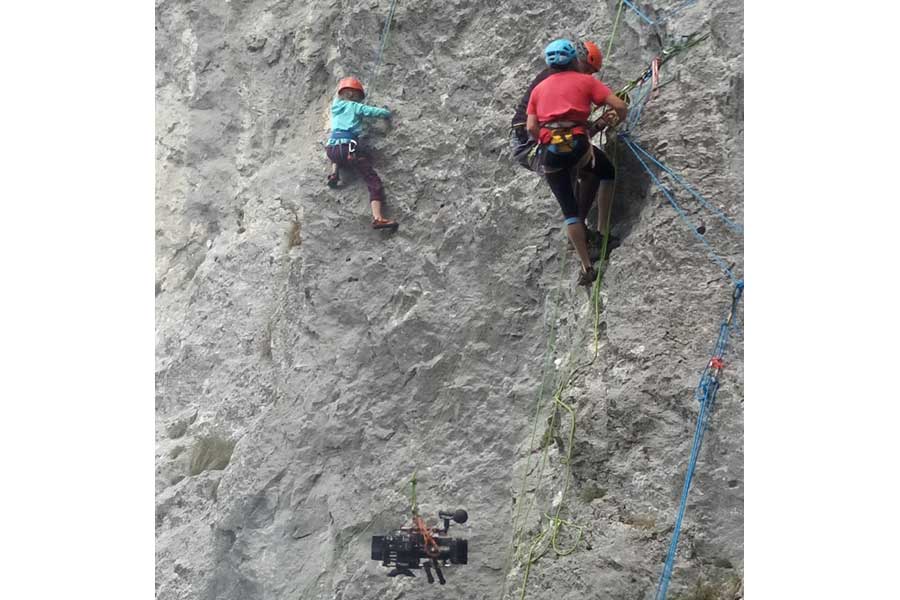 between Slovakia, Romania, the Czech Republic and Ireland, and it was produced by Slovakia's Punkchart films in coproduction with Point Film, Radio and Television of Slovakia, Negativ, Film and Music Entertainment, Libra Film Productions, Hai Hui Entertainment, sentimentalfilm.
between Slovakia, Romania, the Czech Republic and Ireland, and it was produced by Slovakia's Punkchart films in coproduction with Point Film, Radio and Television of Slovakia, Negativ, Film and Music Entertainment, Libra Film Productions, Hai Hui Entertainment, sentimentalfilm.
Cecília Felméri's Spiral, a Hungarian/Romanian coproduction starring Golden Bear winner protagonists Alexandra Borbély and Bogdan Dumitrache, alongside Diána Kiss Magdolna, was awarded the Special Jury Prize (ex-aequo) at the 2020 Thessaloniki IFF in the Meet the Neighbors competition, as well as the Jury Special Mention in the Competition 1-2 of the Warsaw IFF. Spiral was produced by Hungary’s Inforg M&M Film in coproduction with Hungary’s FocusFox Studio and Romania’s Hai-Hui Entertainment.
The Romanian web documentary Unquiet Voices was nominated for the 24th Webby Awards. The participatory documentary was directed by Ioana Mischie, written by Roxana Niță and Adina Stănescu, and produced by Centrade Cheil and STUDIOSET. The web-doc had previously been awarded in international competitions including Golden Drum (two bronze medals), Webstock (Best Video Use), and nominated for the Cannes Lions in three categories.
Corneliu Porumboiu’s The Whistlers / La Gomera received 10 awards including Best Film and Best Director at the 14th Gopo Awards. The first open-air Gopo Awards gala was hosted at the end of June 2020. It had been previously scheduled for 24 March 2020 but was postponed because of the COVID-19 pandemic.
The Whistlers also received the Grand Prix and the Romanian Filmmakers Union (UCIN) Trophy at the 48th edition of the UCIN Gala, as well as the award for Best Film in 2019 from the Romanian Critics Association, which was announced during the same event in September 2020.

The most important distributor in Romania in 2020, on the basis of first time released feature films, was Ro-Image 2000, followed by Vertical Entertainment, Independența Film, InterComFilm Distribution, andTransilvania Film.
Other distributors are Bad Unicorn, Odeon Cineplex, Forum Film Romania, Micro Film, Voodoo Films Macondo, BML Music Entertainment, Cine Europa and Clorofilm.
Several production companies also have a distribution branch: Mandragora, Parada Film, Zazu Film, Oblique Media Film, Abis Studio.
VOD PLATFORMS AND ONLINE DISTRIBUTION
While most of the festivals went online or had hybrid editions throughout the year, film distributors such as Independența Film and Bad Unicorn chose to distribute their films online (Independența Film had already been distributing films on Vimeo for some years).
The quarantine inspired filmmakers and actors to create pandemic stories for the online distribution. Launched on 27 March 2020, the pilot of the first Romanian sitcom about COVID-19, Discutabil gathered more than 80,000 viewers on Facebook and YouTube in approximately two weeks. Director Vlad Zamfirescu, scriptwriter Alexandru Popa and producer Cristina Dobrițoiu (ATIC pictures) made seven episodes afterwards.
The Romanian COVID pandemic feature film Nine Stories of Love and Hate in Isolation / Nouă povești de dragoste și ură in izolare by Dan Chișu, who produced it through DaKINO Production, had 15,000 viewers at its online premiere on 10 May 2020. The number of viewers reached approximately 15,000 on YouTube and approximately 10,000 on Facebook within two days.
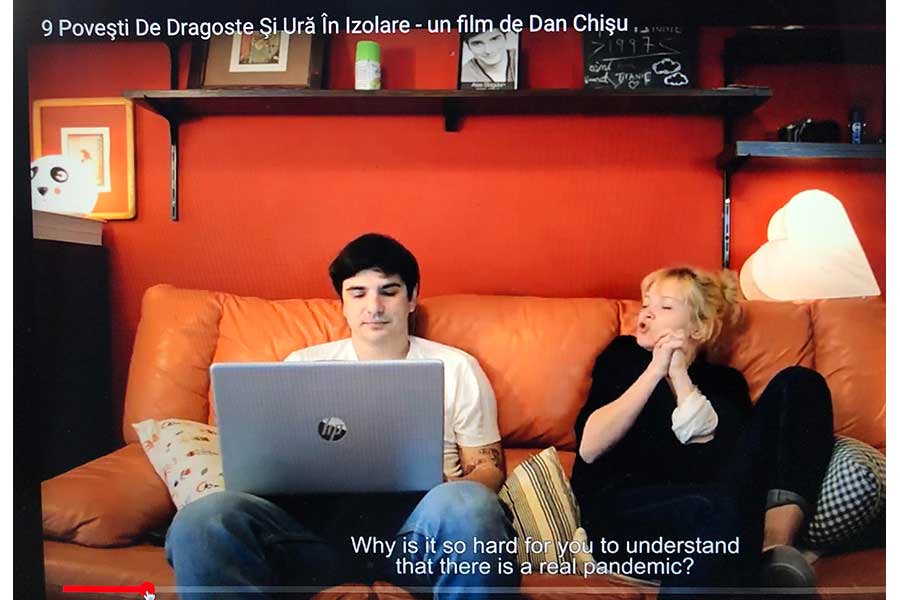 The acclaimed writer/director Radu Jude also made a short film inspired by the pandemic. Autoportret was made at the request of Arte/ZDF for goEast FF in Wiesbaden and is available on Vimeo.
The acclaimed writer/director Radu Jude also made a short film inspired by the pandemic. Autoportret was made at the request of Arte/ZDF for goEast FF in Wiesbaden and is available on Vimeo.
At the end of April 2020 the Transilvania IFF announced its plans to expand its streaming platform TIFF Unlimited, which had been launched during its past edition in June 2019 as the only product of its kind in Eastern Europe. The platform saw an increase in subscription by over 40% in March 2020, becoming an important alternative for the currently quarantined audience in Romania.
The 24th edition of the European Film Festival took place online and a collection of 18 films made by Romanian directors in isolation and presented during the festival under the title Cinem@casa / Cinem@Home were also made available later on TIFF Unlimited.
Some of these films, which were directed by David Schwartz, Vlad Petri, Teona Galgotiu, Laura Pop, Andra Tarara, Alina Manolache and Alexandru Solomon, were put together in a portmanteau project Journey around the home in 60 Days / Călătorie în jurul casei în 60 de zile, which was selected for the Jihlava IDFF.
In November 2020 the project Dislocat. Home Away was launched on Facebook and Instagram. The project was initiated by Gabriel Sandu and it was shot in Bucharest and London in a format accustomed for smartphones. Dislocat. Home Away follows an actress (Edith Alibec), who is isolated in Bucharest by the travel restrictions and tries to overcome the isolation by talking online with her friends.
EXHIBITION AND BOX OFFICE
The box office fell from 1.25 m EUR in the week of 2-8 March 2020 to 276,375 EUR in 9-15 March 2020, as all mass gatherings of more than 100 people were banned on 11 March 2020, while multiplexes 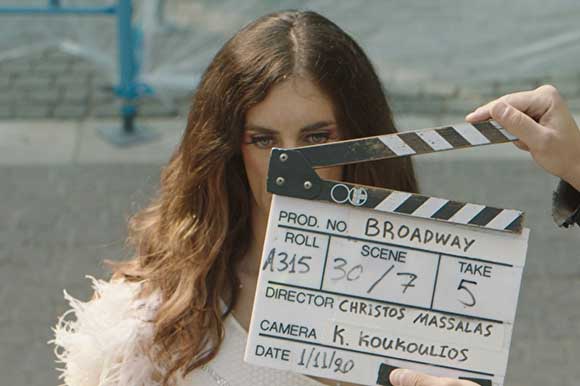 continued to operate with less than 100 spectators per screening.
continued to operate with less than 100 spectators per screening.
The domestic hit Miami Bici directed by Jesús del Cerro had 32,941 admissions from 9 to 15 March 2020, compared to 150,994 admissions from 2 to 8 March and 213,883 admissions from 24 February to 1 March 2020.
Romania declared a state of emergency on 16 March 2020.
Open air and drive-in screenings were allowed to operate starting 1 June 2020.
Cinemas in Bucharest re-opened on 1 September 2020 after a halt of five months, and were closed again from 7 to 15 October 2020, and then since 20 October 2020, as the incidence rate of Coronavirus infections exceeded 3 cases for 1,000 citizens.
Cinemas in other towns closed down one by one as the rate of infections increased and on 9 November 2020 Cinema City, the biggest cinema operator in Romania, announced that it was shutting down all its cinemas until further notice.
 Cineplexx România opened its fifth multiplex at Shopping City Târgu Mureș in September 2020.
Cineplexx România opened its fifth multiplex at Shopping City Târgu Mureș in September 2020.
Cinema City is the biggest cinema operator in Romania. It runs 26 multiplexes in 19 Romanian towns with 237 screens and 42,031 seats.
In 2020 general admissions were 3,302,150, according to the Romanian Film Centre. Romanian films in premiere had 604,247 admissions.
The total gross was 13.8 m EUR / 67,985,022 RON in 2020, while domestic films cashed in 2.52 m EUR / 12,404,970 RON.
In 2019 general admissions were 13,129,951 and the total gross was 53.9 m EUR / 265,383,592 RON, according to official statistics issued by the Romanian Film Centre.
The number of cinemas decreased from 98 in 2019 to 95 in 2020, but the number of seats increased from 76,333 in 2019 to 78,079 in 2020. There were 449 screens in 2020. From the 95 cinemas operating in 2020, 59 were multiplexes with more than two screens.
The average admission per capita dropped from 0.68 in 2019 to 0.17 in 2020.
The average ticket price in 2020 was 4.19 EUR / 20.59 RON compared to 4.07 EUR / 20 RON in 2019.
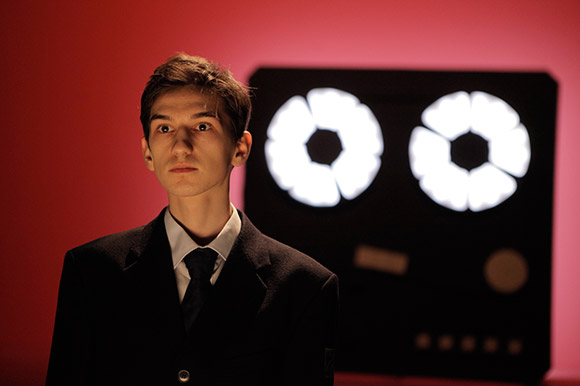
GRANTS AND NEW LEGISLATION
In May 2020 more than 230 Romanian film companies, 20 film associations and 35 filmmakers have come up with a plan for saving the local film industry from breakdown due to the COVID-19 pandemic. They appealed to the President, the Prime Minister and the Ministers of Finances, Economy and Culture to declare a Cultural Emergency Situation in Romania, which didn't happen.
According to the plan, the first measure to be taken was the immediate revival of the Cash Rebate scheme, which had been halted in November 2019. Then the immediate initiation of a Protection and Prevention Fund to balance the pandemic's effects (a fund estimated at 1.03 m EUR / 5 m RON for 2020), which would be managed by the Romanian Film Centre, as well as the initiation of a Backup Insurance Fund (estimated at 1.68 m EUR / 10 m RON) for accidental blockages during the shooting, which would be managed by the Ministry of Economy, Energy and Business Environment, and which should be open for domestic and international productions.
Romanian filmmakers were also proposing the elaboration of legislative conditions to require the VoD platforms which were active in Romania but didn’t have a Romanian branch (Netflix, HBO, Amazon) to contribute to the domestic production through the Film Fund managed by the Romanian Film Centre.
They also urged the political power to regulate the copyright legislation for authors and performing artists so as to allow the collection from monetised online distribution, and also to enhance the digitalisation process of administrative procedures in the film industry.
The Romanian Film Centre (CNC) was not involved in this initiative. Anca Mitran, the head of the CNC, told FNE that the Romanian Film Centre was not consulted and that it had a different opinion on the matter. “Our law is rigid and it doesn’t allow other funds additional to the production state support,” Anca Mitran said. She also said that “most of the requests from the filmmakers refer to measures of social protection, which is not among the CNC’s duties.”
However, the main priority for the Romanian CNC coincided with the main priority of the filmmakers: the immediate revival of the cash rebate scheme. The second priority for the CNC was to immediately put into force a law declaring that 4% of the money collected by the state from gambling companies should go to the Film Fund managed by the CNC.
The third priority of the CNC was the approval of the new Film Law, which would include some of the measures required by the filmmakers, including a contribution of 3% from the online distribution of films.
No further steps were made in 2020 regarding the new Film Law or the 4% of the money collected by the state from gambling companies, which by law should go to the Film Fund. Combined with the steep 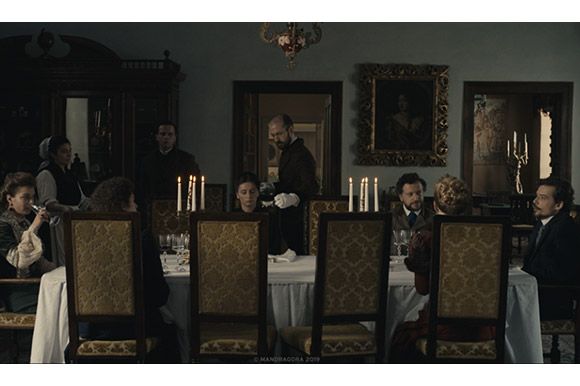 decrease of the percent from the cinema tickets, which also should go to the Film Fund, no grants contest was organised in 2020.
decrease of the percent from the cinema tickets, which also should go to the Film Fund, no grants contest was organised in 2020.
“In 2020 the Film Fund decreased by 50% from approximately 50 m RON to approximately 20 m RON, of which only 3 m RON are available right now”, film consultant Alex Trăilă said in an interview for Films in Frame in November 2020.
It was only in August 2020 when Romania officially decided to resume the cash rebate scheme, which had halted in 2019, by allotting 150 m EUR until 31 December 2023. However, the scheme still wasn't operative at the end of 2020 because the Ministry of Economy, Energy and Business Environment, which had taken over the management of the cash rebate scheme from the National Commission for Prognosis, failed to finish the paperwork, despite the appeals of the film professionals and the newly established Romanian Alliance of Film Producers (APF), presided by Iuliana Tarnovețchi and having Alex Trăilă as CEO.
Moreover, most of the projects which had already applied for cash rebate (21), were still waiting for the rebates at the end of 2020. From the 50 m EUR allotted by the Romanian Government, only 494,000 EUR were returned in two years since the scheme was launched.
Romania’s cash rebate scheme was launched on 8 October 2018. The state aid scheme offers a 35% cash rebate on qualified expenditure for international productions shooting in Romania. Additionally, productions explicitly promoting Romania, with a minimum local spend of 20% of the total budget of the production, can also apply for a rebate of 10%.
The CNC announced on 26 March 2020 that it would postpone various actions, including the signing of contracts for film production and the payment of the first and second tranches of film production grants. As a consequence, more than 150 Romanian professionals appealed to the director of the Romanian Film Centre (CNC) and the members of the administration council saying that the measures 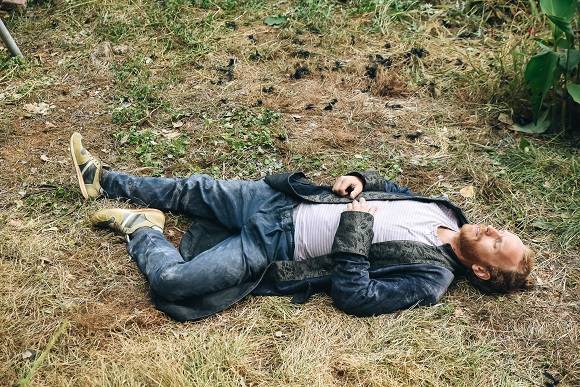 announced by the CNC would “effectively block” the operations that might be undertaken until the restrictions caused by COVID-19 are lifted.
announced by the CNC would “effectively block” the operations that might be undertaken until the restrictions caused by COVID-19 are lifted.
The Romanian Film Centre (CNC) distributed almost 3.9 m EUR / 18,832,000 RON as production grants for feature films, debut features, documentaries, animated films, short fiction films and thematic films. The grants announced on 26 May 2020 were the result of the second batch of 2019 grants, launched at the end of 2019.
Only four feature films received production funding, including projects by Călin Peter Netzer, Radu Muntean, Andrei Cohn and Adrian Sitaru. The biggest grant of 681,341 EUR / 3.3 m RON went to Călin Peter Netzer’s Familiar, produced by Parada Film.
Two debut features, five long and short documentaries, nine short fiction films, 10 long and short thematic films (the theme of the session was Science Fiction, Fantasy), and four long and short animated films (including Anca Damian’s new project Starseed, produced by Aparte Film) also received production funding.
Ten of the projects in all sections are international coproductions.
According to the law, the Romanian Film Centre should organise two batches of grants per year.
The annual state support for film industry was 7 m EUR / 37 m RON in 2020.
The annual state support for film industry was 11.7 m EUR in 2019, of which approximately 8.5 m EUR / 40 m RON were shared in two loans sessions in the selective scheme for development and production, while approximately 3.2 m EUR went to automatic support grants.
In December 2020 Bogdan Gheorghiu was named Minister of Culture in the new cabinet after the Parliamentary elections that took place on 6 December 2020. He was first named Minister of Culture in the 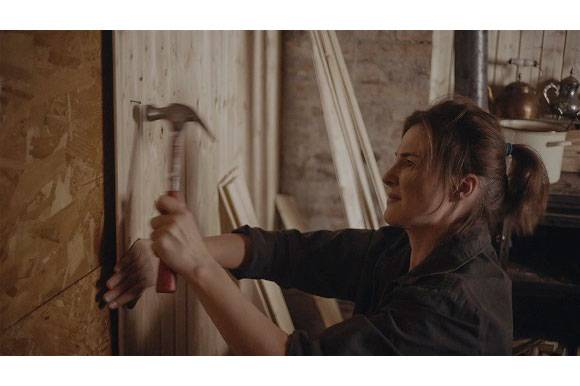 transitional cabinet led by the National Liberal Party leader Ludovic Orban in November 2019.
transitional cabinet led by the National Liberal Party leader Ludovic Orban in November 2019.
In December 2020 the European Film Promotion (EFP) welcomed the non-profit association Romanian Film Development (ADFR – Asociatia de Dezvoltare A Filmului Romanesc) as its 38th member organisation and successor to Romanian Film Promotion.
TV
Romanian channels with the best rating in prime time national in 2020 are Pro TV, Kanal D and Antena 1. Pro TV tops the daily average chart as well, followed by Antena 1 and Kanal D. They are followed by Romania TV, Antena 3, National TV, Prima TV and TVR 1.
The most popular domestic TV series in 2020 was again Las Fierbinți directed by Dragos Buliga and Gabriel Achim, and produced by MediaPro Pictures, whose 17th season was launched on Pro TV on 19 March 2020. The 18th season was shot in 2020 and it will be released in the spring of 2021. Las Fierbinți debuted in 2012.
Adrian Sârbu, former CEO of Central European Media Enterprises (CME) and the helmer of Pro TV, launched a new channel in Romania on 31 August 2020. The channel can be reached via cable and satellite at almost all the communication companies in Romania: Vodafone, Telekom, Orange, iNES and NextGen, as well as online on alephnews.ro, Facebook, Instagram and YouTube.
For mobile phones, the channel is formatted 9:16, similar as for Instagram. The target is 1.3 m people.
Aleph News is the first TV channel from Aleph Group to be launched. It will be followed by Aleph Business and Aleph Comedy, which received a license together with Aleph News in June 2020, as well as Aleph Harmony, Aleph Education and Smart TV, which is co-managed with the journalist Marius Tucă and which also received a license in June 2020.
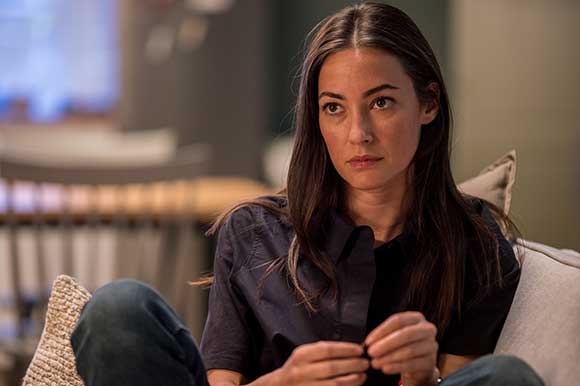 The eight-episode TV series RUXX directed by Iulia Rugină and Octav Gheorghe, and produced by HBO Europe, started shooting in Romania on 31 August 2020. Cristian Mungiu and Tudor Reu are providing production services through Mobra Films.
The eight-episode TV series RUXX directed by Iulia Rugină and Octav Gheorghe, and produced by HBO Europe, started shooting in Romania on 31 August 2020. Cristian Mungiu and Tudor Reu are providing production services through Mobra Films.
Written by Vera Ion, RUXX is a contemporary relationship drama focusing on the young generation living in a country (Romania) caught between the past and the future. The main character is Rux (Raluca Aprodu), a young woman who is trying to balance her professional career with her personal life.
The six-episode original HBO Europe series Tuff Money / Bani negri (pentru zile albe), which was shot in Romania in 2019, was released in all the HBO Europe territories on 22 November 2020. The miniseries written and directed by Daniel Sandu was produced by Cristian Mungiu’s Mobra Films.
The TV mini-series The Untouchable / Intangibilul by Adina Sădeanu and German-American Kirsten Peters, and the feature film Is It Really Happened? / S-a întâmplat by Maria Avram, were the winners of the second edition of the script contest Write a Screenplay for…, organised by Cristian Mungiu’s Asociatia Cinemascop together with HBO Europe. The contest was organised within the fourth edition of the American Independent Film Festival.
CONTACTS:
ROMANIAN FILM CENTRE
4-6, Dem. I. Dobrescu street, sector 1, Bucharest
Phone: +40 213 104 301
Fax: + 40 213 104 300
www.cnc.gov.ro
This email address is being protected from spambots. You need JavaScript enabled to view it.
THE MINISTRY OF CULTURE
22, Bulevardul Unirii, sector 3, Bucharest
Press office: +40 212 243 947
www.cultura.ro
This email address is being protected from spambots. You need JavaScript enabled to view it.
FILMMAKERS’S UNION (UCIN)
28-30 Mendeleev, sector 1, Bucharest
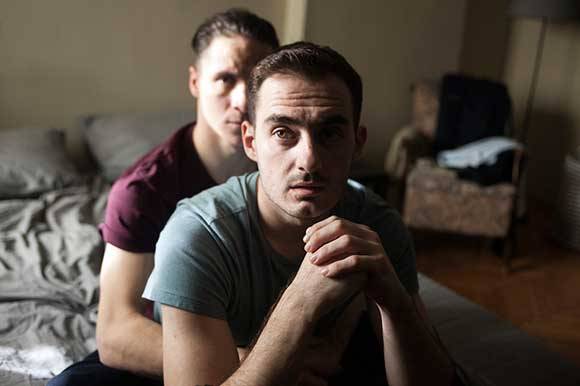 Phone: +40 213 168 0 83, +40 213 168 0 84
Phone: +40 213 168 0 83, +40 213 168 0 84
Fax: + 40 213 111 246
www.ucin.ro
This email address is being protected from spambots. You need JavaScript enabled to view it.
ROMANIAN FILM PRODUCERS’ ALLIANCE (APF)
23 Constantin Boșianu street,
sector 4, Bucharest 040505, Romania
www.apf-romania.ro
This email address is being protected from spambots. You need JavaScript enabled to view it.
ROMANIAN FILM PROMOTION
52 Popa Soare street, sector 2, Bucharest
Phone: + 40 213 266 480
Fax: + 40 213 260 268
www.romfilmpromotion.ro
This email address is being protected from spambots. You need JavaScript enabled to view it.
ROMANIAN FILM DEVELOPMENT (ADFR)
EFP representative
Alexandru Constantinescu Street
Sector 1
Bucharest, Romania
www.romfilmdevelopment.org
This email address is being protected from spambots. You need JavaScript enabled to view it.
ROMANIAN CULTURAL INSTITUTE
38 Aleea Alexandru
Sector 1, 011824
Bucharest, Romania
Phone: (+4) 031 71 00 627, (+4) 031 71 00 606
Fax: (+4) 031 71 00 607
www.icr.ro
This email address is being protected from spambots. You need JavaScript enabled to view it.
CREATIVE EUROPE MEDIADESK ROMANIA
57 Barbu Delavrancea street, et. 1, sector 1, Bucharest
Phone / Fax: +40 213 166 060, +40 213 166 061
www.media-romania.eu
This email address is being protected from spambots. You need JavaScript enabled to view it.
Report by Iulia Blaga (2021)
Sources: Romanian Film Centre - CNC, Cinemagia, Pagina de Media
Slovakia
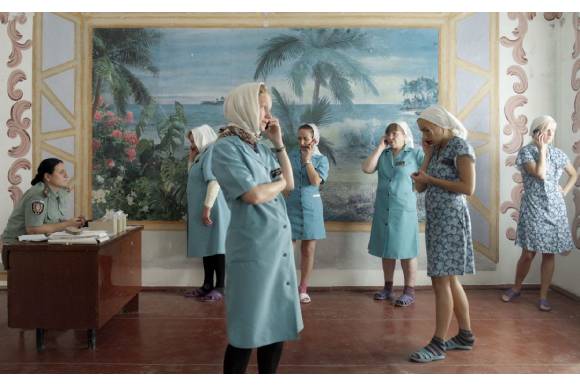 MARKET ANALYSIS 2021
MARKET ANALYSIS 2021
BRATISLAVA: In 2021, Slovakia was significantly affected by the COVID-19 pandemic for the second year. Although production fully restarted in the summer months, thanks to the stabilisation of measures and the improvement of the situation, and also as the distribution of Slovak titles increased by 50% compared to 2020, the cinema attendance fell to the lowest level since 1993.
Slovak filmmakers managed to complete 26 films, while distributors released 30 domestic titles (including 1 restored film).
A total of 63 projects registered for the new 33% cash rebate at the Slovak Audiovisual Fund in 2021, compared to 45 in 2020.
PRODUCTION
A total of 14 feature films (including 10 minority coproductions), 10 documentaries (including three minority coproductions) and two animated films were completed in 2021.
Multiple high-profile projects were in production in 2021 and some of them are expected to premiere in 2022.
Iveta Grófová started production on Emma and the Death´s Head / Emma a smrtihlav, produced by PubRes in coproduction by Total Helpart T.H.A., Campfilm, RTVS and the Czech Television.
Mariana Čengel Solčanská shot the last scenes for Chambermaid / Slúžka, produced by Bright Sight Pictures and coproduced by Czech Television and CINEART TV Prague.
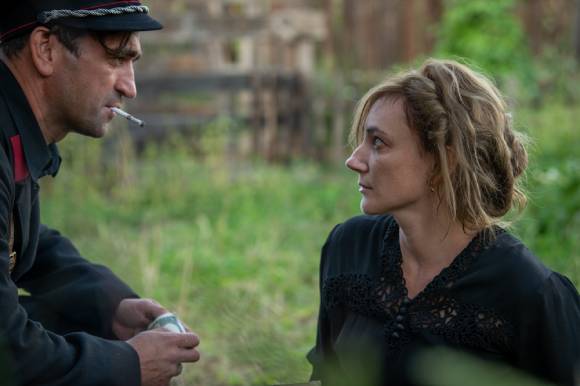 Jakub Kroner was working on the long-awaited sequel Love 2 / Lóve 2, produced by INOUT Studio.
Jakub Kroner was working on the long-awaited sequel Love 2 / Lóve 2, produced by INOUT Studio.
Jonáš Karásek was in production with Invalid, produced by Slovak AZYL Production in coproduction with RTVS, HomeMedia and Czech Cinemart.
The acclaimed director/producer Katarína Kerekesová continued the production of the popular animated series Websters and the animated feature The Websters Movie, produced by Kerekesova´s Fool Moon and coproduced by 13ka, Progressive FX, RTVS and the Czech Television.
Foreign productions were also shot in Slovakia in 2021, such as the Amazon series Tom Clancy's Jack Ryan, which was partially shot in Slovakia at the end of the summer. Another American production, The Performance was shot in November 2021 in Bratislava.
After new amendments to the Audiovisual Law had been approved in September 2019, the cash rebate increased from 20% to 33% starting 1 January 2020.
A total of 63 projects registered for the cash rebate at the Slovak Audiovisual Fund in 2021, compared to 28 in 2019 and 45 in 2020. The list includes the Slovak Just a Lot of Love / Hlavne veľa lásky by Branislav Mišík, produced by NUNEZ NFE, the Czech/Slovak coproduction Snake Gas / Hadí plyn by David Jařab, produced by Cineart TV Prague in coproduction with Arina Film production and the Czech Television; the Czech/ Slovak coproduction Better Go Mad in the Wild / Raději zešílet v divočině by Miro Remo, produced by Nutprodukce in coproduction with Arsy- Versy, and the Czech/French/Slovak coproduction My Sunny Maad by Michaela Pavlátová, produced by Czech Negativ in coproduction with French Sacrebleu production, the Czech Television and Slovak BFILM.
DISTRIBUTION
A total of 30 domestic films, 16 documentaries, 13 feature films (including one restored film) and one animated film, were distributed in Slovakia in 2021, an increase of 50% compared to 2020. Six of them were 100% Slovak productions, 9 were majority coproductions, 1 parity coproduction, and 14 were minority coproductions.
The Association of Slovak Film Clubs (ASFK) was the leader in distributing domestic titles in 2021 with two 100% Slovak productions: King Bee / To ta monarchia directed by Vladislava Sárkány and produced by sarkany in coproduction with RTVS, and Everest - The Hard Way by Pavol Barabáš, produced by K2 studio.
ASFK also released the Slovak majority coproduction The Commune / Komúna by Jakub Julény, produced by HITCHHIKER Cinema in coproduction with RTVS and Background Films (Czech Republic), as well as the minority coproductions Reconstruction of the Occupation / Rekonstrukce okupace by Jan Šikl, produced by Cinepoint (Czech Republic) in coproduction with PubRes (Slovakia), the Czech Television, Pagafilm (CZ) and RTVS, Wild Roots / Külön falka by Hajni Kis, produced by Proton Cinema 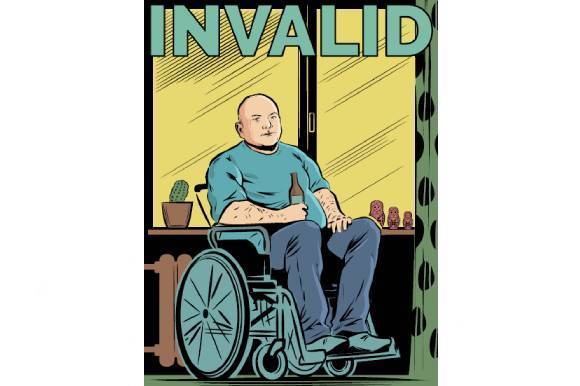 (Hungary) in coproduction with Slovak MPhilms (Hungary), and My Sunny Maad / Moje slunce Mad by Michaela Pavlátová, produced by Negativ (Czech Republic) in coproduction with Sacrebleu Productions (France), BFILM (Slovakia) and the Czech Television.
(Hungary) in coproduction with Slovak MPhilms (Hungary), and My Sunny Maad / Moje slunce Mad by Michaela Pavlátová, produced by Negativ (Czech Republic) in coproduction with Sacrebleu Productions (France), BFILM (Slovakia) and the Czech Television.
Film Expanded, the alternative distribution company focusing on creative documentaries, released five domestic titles in 2021. Among them two were 100% Slovak productions: The Sailor by Lucia Kašová, produced by TOXPRO, and Lines / Čiary by Barbora Sliepková, produced by HITCHHIKER Cinema in coproduction with RTVS, TOXPRO, Vidno and Atelier 213. Film Expanded also released the majority coproductions White on White / Biela na bielej directed by Viera Čákanyová, produced by Guča in coproduction with Marina Films (Czech Republic), On Your Marks! / Na značky! by Mária Pinčíková, produced by PubRes, Cinepoint (Czech Republic) and RTVS, as well as the minority coproduction Every Single Minute / Každá minuta života by Erika Hníková, produced by the Czech endorfilm in coproduction with Punkchart Film (Slovakia).
The distribution company Filmtopia also released five domestic titles. The list includes the majority coproductions Ordeal / Očista by Zuzana Piussi, produced by VIRUSfilm (Slovakia) and D1Film (Czech Republic) in coproduction with RTVS; At Full Throttle / Láska pod kapotou by Miro Remo, produced by Arsy-Versy and D1Film (Czech Republic) in coproduction with the RTVS and the Czech Television; 107 Mothers / Cenzorka by Peter Kerekes, produced by Punkchart films and coproduced by the RTVS, endorfilm (Czech Republic), Arthouse Traffic (Ukraine), Kerekes Film (Slovakia) and Hypermarket Film (Czech Republic); as well as the minority coproductions Once Upon a Time in Poland / Jak Bůh hledal Karla by Vít Klusák and Filip Remunda, produced by Vernes (Czech Republic) in coproduction with the Czech Television, Hypermarket Film (Czech Republic), Plesnar & Krauss Films (Poland) and Kerekes Film (Slovakia), and Shadow Land / Krajina ve stínu by Bohdan Sláma, produced by Luminar film (Czech Republic) in coproduction with Filmpark production (Slovakia), the Czech Television and i/o post (Czech Republic).
ITAFILM released the Slovak majority coproductions Known Unknown / Známi neznámi by Zuzana Marianková, produced by Wandal Production (Slovakia) in coproduction with Angry Tiger 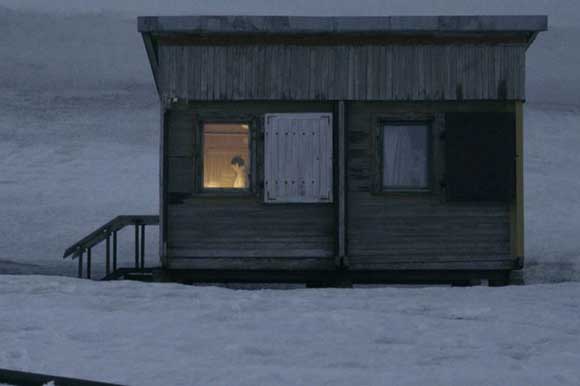 (Slovakia), En Libre (Slovakia) and Alluvium Production (Czech Republic), and How I Became a Partisan / Ako som sa stala partizánkou by Vera Lacková, produced by Media Voice (Slovakia) Film & Sociologie (Czech Republic), RTVS and the Czech Television. ITAFILM also released the minority coproduction Forebodings / Predtuchy by Vyacheslav Kryshtofovych, produced by Garnet International Media Group (Ukraine) and Taura (Lithuania) in coproduction with Wandal Production.
(Slovakia), En Libre (Slovakia) and Alluvium Production (Czech Republic), and How I Became a Partisan / Ako som sa stala partizánkou by Vera Lacková, produced by Media Voice (Slovakia) Film & Sociologie (Czech Republic), RTVS and the Czech Television. ITAFILM also released the minority coproduction Forebodings / Predtuchy by Vyacheslav Kryshtofovych, produced by Garnet International Media Group (Ukraine) and Taura (Lithuania) in coproduction with Wandal Production.
Bontonfilm released three minority coproductions: Martin and the Magical Forest / Mazel a tajemství lesa by Petr Oukropec, produced by BFILM.cz (Czech Republic) in coproduction with BFILM and Germany‘s Leitwolf Filmproduktion; The Pack / Smečka by Tomáš Polenský, produced by 8Heads Productions (Czech Republic) in coproduction with Furia Film (Slovakia) and EgoMedia (Latvia), and Zátopek by David Ondříček, produced by Lucky Man Films (Czech Republic) in coproduction with Czech Television, Z Films (Czech Republic), Accolade (Czech Republice), Alef Nula (Czech Republic), Sebre (Czech Republic), Barrandov studio (Czech Republic), T-mobile, Innogy (Czech Republic), AZYL Production (Slovakia) and RTVS (Slovakia).
Continental Film released the majority coproduction The Auschwitz Report / Správa by Peter Bebjak, produced by D.N.A. in coproduction with Evolution Films (Czech Republic), Ostlicht Filmproduktion (Germany), RTVS, the Czech Television.
CinemArt SK released two minority coproductions: Cook, F**k, Kill / Žáby bez jazyka by Mira Fornay, produced by CINEART TV Prague, in coproduction with RTVS, the Czech Television, 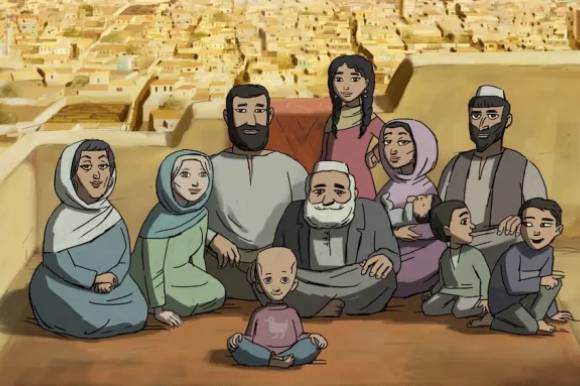 Synergia film (Czech Republic) and MIRAFOX (Slovakia), and Wrap Up and Disappear / Ubal a zmiz by Adam Hobzik, produced by Flamesite (Czech Republic) in coproduction with Petarda (Czech Republic), SOLID ENTERPRISE (Slovakia), CinemArt SK and ATTACK FILM (Slovakia).
Synergia film (Czech Republic) and MIRAFOX (Slovakia), and Wrap Up and Disappear / Ubal a zmiz by Adam Hobzik, produced by Flamesite (Czech Republic) in coproduction with Petarda (Czech Republic), SOLID ENTERPRISE (Slovakia), CinemArt SK and ATTACK FILM (Slovakia).
MEDIA FILM released the majority Slovak coproduction Architect of Brutal Poetry / Architekt drsnej poetiky, a documentary by Ladislav Kaboš, produced by EDIT Studio in coproduction with KABOS Film & Media (Czech Republic) and Cteand Embaúba Produções (Brasil).
Forum Film released the minority coproduction Emma in Love / Chyby by Jan Prušinovský, produced by Offside Men (Czech Republic) in coproduction with the Czech Television and PubRes (Slovakia).
Garfield Film released the Slovak majority coproduction The Man with Hare Ears / Muž so zajačími ušami by Martin Šulík, produced TITANIC s.r.o., IN Film Praha in coproduction with RTVS and the Czech Television.
Also in 2021, the Slovak documentary Libertas by Boris Vereš, produced by Fullframe s.r.o, premiered and was distributed online on its own website.
VOD PLATFORMS AND ONLINE DISTRIBUTION
Alongside mainstream platforms available in Slovakia such as Netflix, HBO MAX and Amazon´s Prime Video, several alternative VOD platforms provide streaming of art films, award winning titles, documentaries and domestic titles.
Some platforms and initiatives set up in 2020 in response to the closing of cinemas during the pandemic, such as #kináspolu or Filmtopia - Online at Your Home have phased out.
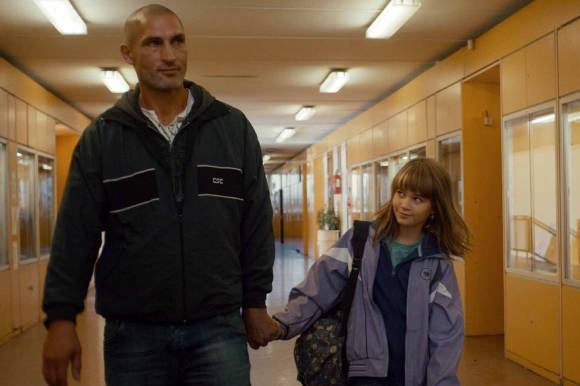 Edisonline, the first Czech/Slovak online video library, focuses mainly on award-winning European titles. At the price of a cinema ticket (6 EUR per month), viewers can choose from among over 1000 titles and have access to online broadcasting of two film TV channels, Film Europe and Film Europe +.
Edisonline, the first Czech/Slovak online video library, focuses mainly on award-winning European titles. At the price of a cinema ticket (6 EUR per month), viewers can choose from among over 1000 titles and have access to online broadcasting of two film TV channels, Film Europe and Film Europe +.
dafilms.sk, the largest VOD platform in Slovakia primarily focusing on local content, was launched in February 2020 by the international streaming service DAFilms. Priority is given to original documentaries, films at the crossroads of genres, experimental and art films, as well as current domestic feature films and important foreign titles.
ASFK is a VOD platform launched in 2020, provided by The Association of Slovak Film Clubs, which currently offers 41 club film titles and world-acclaimed films.
Kino Lumière, which is operated by the Slovak Film Institute, continued with the Cinema at Home online platform, after the cinemas reopened with occasional screenings. The platform was streaming the programme of the Slovak Film Week, whose 7th edition took place in a reduced online format from 29 November to 5 December 2021.
EXHIBITION AND BOX OFFICE
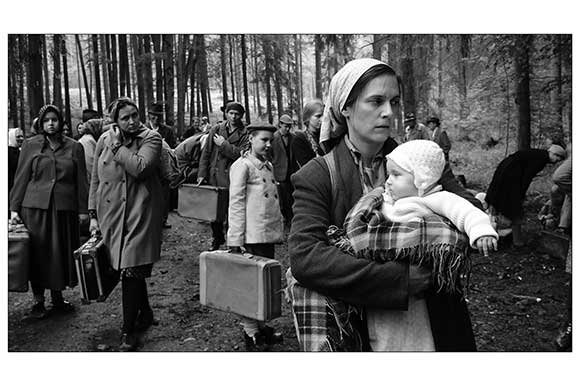 In 2021, Slovakia had 160 cinemas with 273 screens, of which 208 had already been digitalised (including six open air theatres). They include five multiplexes, 23 miniplexes, 87 single screen cinemas, 34 open air theatres, three traveling theatres, one drive-in and 7 alternative spaces.
In 2021, Slovakia had 160 cinemas with 273 screens, of which 208 had already been digitalised (including six open air theatres). They include five multiplexes, 23 miniplexes, 87 single screen cinemas, 34 open air theatres, three traveling theatres, one drive-in and 7 alternative spaces.
In 2021, the number of cinemas decreased from 163 to 160 and the number of digitalised screens increased from 195 to 208, compared to 2020.
Slovakia also has one IMAX cinema, which opened in 2015 in Bratislava and it's operated by Cinemax.
Several small art house cinemas operate in Bratislava. Kino Lumière has been operated by the Slovak Film Institute on the site of the former Charlie’s Centrum since September 2011. Mladosť, Artkino za zrkadlom, Kino Lúky and Film Europe Cinema also add to the diversity of Bratislava's art house landscape, together with Kino inak, a screening room hosted by the alternative cultural centre A4 – Space for Contemporary Culture.
In 2021 cinemas were allowed to open since 17 May until 24 November, when they were closed again, due to the rapidly deteriorating pandemic situation.
In total, cinemas had to be closed for 173 days in 2021, compared to 116 days in 2020. However, they were closed a few days longer in May, when it was not possible to open them immediately due to necessary preparations.
The cinema screenings dropped only by 0.76% from 98,714 in 2020 to 97,962 in 2021, but the average admissions dropped by 13.16% from 23.96 admissions to one screening in 2020 to  20.8 in 2021.
20.8 in 2021.
Total admissions were 2,037,942, with a decrease of 13.82% compared to 2020. It is the lowest number of admissions since 1993. Total gross was 12,351,764 EUR, with a decrease of 11.56% compared to 2020.
Although the number of Slovak premieres in cinemas increased by 50%, the attendance for Slovak titles fell by as much as 74 % to 201,629 admissions, compared to 775,487 in 2020.
GRANTS AND NEW LEGISLATION
The Slovak Audiovisual Fund has been the main tool of public support for cinema in the Slovak Republic since 2010. The budget of the AVF is subsidised with at least 6 m EUR annually from the country’s budget and by the contributions of other subjects, like TV channels, cinemas and distributors.
The average yearly support from 2010 to 2020 (standard grants for audiovisual culture) was 7.8 m EUR. The estimated support in 2022 is 8 m EUR.
In 2021, the Slovak Audiovisual Fund registered 636 applications for audiovisual culture support, of which 351 (55.2%) were supported with a total amount of 10,546,452 m EUR (on 22 April 2022).
Established in 2015, Slovakia’s 33% incentive scheme, which had been 20% before 1 January 2020, eased its requirements starting August 2017. In 2021 the Fund supported film projects with a total amount of 706,887 EUR. The minimum sum of expenses is 300,000 EUR for fiction TV series and 100,000 EUR for feature films and documentary series, and 50,000 EUR for documentary films, animated films or series.
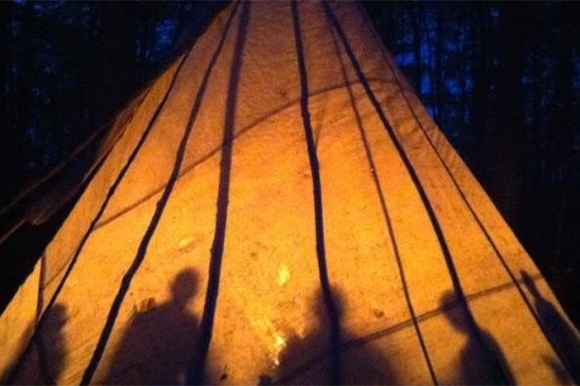 The cash rebate support of the audiovisual industry has a separate budget according to the presumable expenses of registered projects. There is no maximum limit of budget for the audiovisual industry support. In 2015-2021 the total cash rebate support provided by the Fund was 11.8 m EUR.
The cash rebate support of the audiovisual industry has a separate budget according to the presumable expenses of registered projects. There is no maximum limit of budget for the audiovisual industry support. In 2015-2021 the total cash rebate support provided by the Fund was 11.8 m EUR.
In 2022 the maximum amount of support for one project is: 45,000 EUR for development, 2 m EUR for production, 20,000 EUR for distribution, and 200,000 EUR for minority productions.
As for the COVID support, two calls were announced by the Ministry of Culture of the Slovak Republic during 2021. In March non-profit organisations working in culture and creative industry could apply for support. The maximum amount of support for one organisation was 50,000 EUR.
The second call, published in May, targeted professionals working in culture. Individuals who lost more than 30% of their income in 2020 could receive support of 4,000 EUR or 6,000 EUR.
In accord with the Slovak Audiovisual Fund (AVF) Act’s amendment of 2017, the Slovak Film Commission was established as a unit of the AVF. The Commission’s aim is to promote the Slovak film industry, to mediate creative business opportunities for Slovak audiovisual professionals and to present related services and individual regions of Slovakia. Zuzana Bieliková was appointed manager of the SFC on 1 June 2018.
The primary source of information on films is the Slovak Film Institute through its specialised office, the Audiovisual Information Centre.
TV
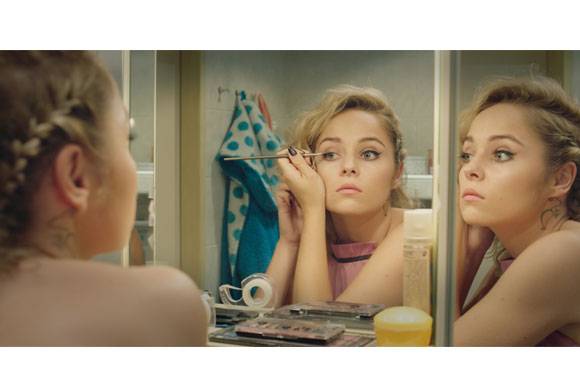 Slovakia is unique in the CEE as the home of the only channel devoted exclusively to European films. Film Europe Channel was developed by Film Europe Media Company, which operates two more channels - Československo HD, dedicated to Czech and Slovak cinema, and Be2Can HD, which had been called Festival HD till November 2018, for films from A-list festivals.
Slovakia is unique in the CEE as the home of the only channel devoted exclusively to European films. Film Europe Channel was developed by Film Europe Media Company, which operates two more channels - Československo HD, dedicated to Czech and Slovak cinema, and Be2Can HD, which had been called Festival HD till November 2018, for films from A-list festivals.
The public broadcaster RTVS (Jednotka, Dvojka, Trojka) launched in December 2021 a new channel :šport, followed by :24 in February 2022.
The commercial broadcasters are: Slovenská produkčná (with channels: TV JOJ, JOJ PLUS, WAU, JOJ Cinema, Jojko, JOJ Family, JOJ Šport, Ťuki TV, CS Film, CS Mystery, CS History, CS Mystery, CS Horror, JOJ Šport), Markiza Slovakia (with channels: TV Markíza, TV Doma, Dajto), the news channel TA3 (by C.E.N.), children channel ducktv (by Mega Max Media) and religious channel TV Lux.
The TV crime series Ultimatum / Ultimátum by Michal Kollár, produced by KFS production, TV JOJ and the Czech Television, was finishing postproduction.
TV JOJ also started the production of the comedy TV series The Border / Hranica directed by Ján Novák, which is based on the Croatian TV series On the Border / Na granici (Nova TV).
The last episode of the historical TV miniseries Maria Theresa / Mária Terézia directed by Robert Dornhelm was in production in April 2021. It is produced by RTVS, the Czech Television, Austrian ORF, German Beta film GmbH and Slovak Maya Production.
CONTACTS:
SLOVAK AUDIOVISUAL FUND
Director: Martin Šmatlák
Grösslingová 53
SK-811 09, Bratislava
Phone: +421 5923 4545
Fax: +421 5923 4461
This email address is being protected from spambots. You need JavaScript enabled to view it.
www.avf.sk
 SLOVAK FILM COMISSION
SLOVAK FILM COMISSION
Manager: Zuzana Bieliková
Grösslingová 53
SK-811 09, Bratislava
Phone: +421 905 360 033
This email address is being protected from spambots. You need JavaScript enabled to view it.
SLOVAK FILM INSTITUTE
General Director: Peter Dubecký
Phone: +421 2 5710 1503
Fax: +421 2 5296 3461
This email address is being protected from spambots. You need JavaScript enabled to view it.
www.sfu.sk
AUDIOVISUAL INFORMATION CENTER
Miroslav Ulman
Lea Pagáčová
This email address is being protected from spambots. You need JavaScript enabled to view it.
This email address is being protected from spambots. You need JavaScript enabled to view it.
www.aic.sk
NATIONAL CINEMATOGRAPHIC CENTRE
Director: Rastislav Steranka
Phone: +421 2 5710 1526
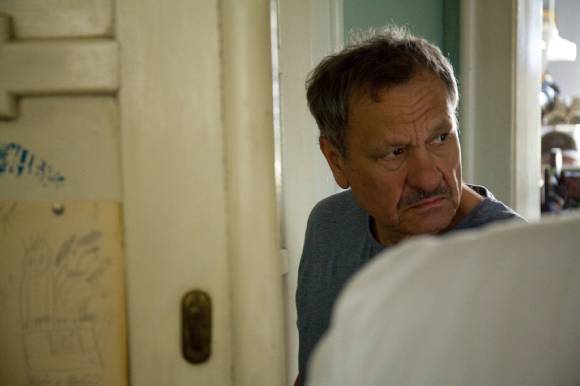 Phone/fax: +421 2 5273 3214
Phone/fax: +421 2 5273 3214
This email address is being protected from spambots. You need JavaScript enabled to view it.
RADIO AND TELEVISION OF SLOVAKIA
Mlynská dolina
845 45 Bratislava
Phone: +421 2 6061 1103
This email address is being protected from spambots. You need JavaScript enabled to view it.
www.rtvs.sk
Report by Zuzana Točíková Vojteková (2022)
Sources: the Slovak Film Institute, the Slovak Audiovisual Fund, the Union of Film Distributors of the Slovak Republic
Slovenia
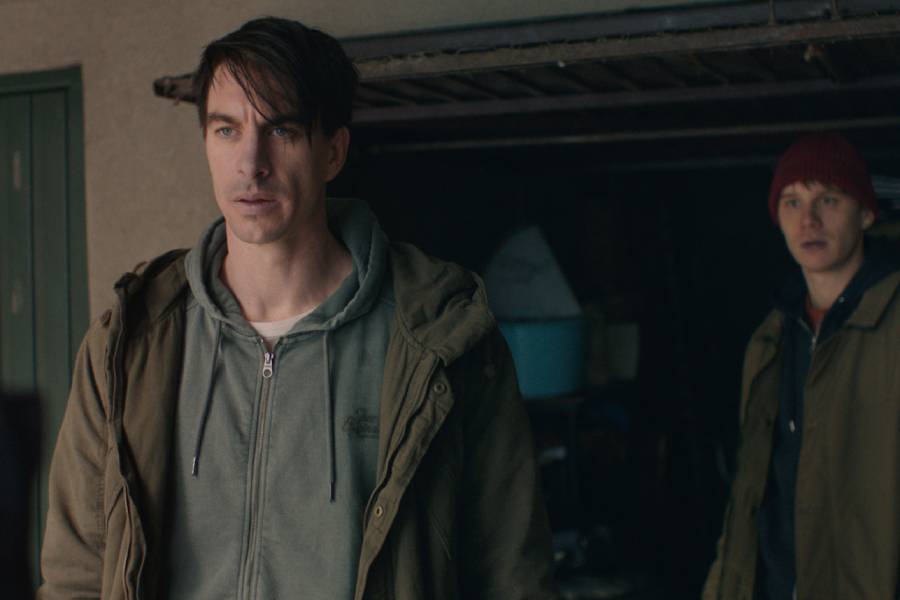 MARKET ANALYSIS 2023
MARKET ANALYSIS 2023
LJUBLJANA: In 2023, cinema exhibition and film production were generally stabilised. Cinema attendance still did not reach pre-pandemic numbers but is getting there, having reached 2 m admissions. Film distribution and cinema releases completely recovered, as well as film production.
The 2023 admissions were almost the same as in 2022 (with significantly lower share for domestic titles), while the box office slightly increased due to higher ticket prices.
The first and the largest Slovenian cineplex Kolosej Ljubljana, which started operating in 2001, closed in March 2023 due to financial and legal problems of the company Kolosej Kinematografi.
The Slovenian Film Centre (SFC), received 8.975 m EUR for running costs, film funding and other activities in 2023 (compared to 6.667 m EUR in 2022). The goal, announced in 2018, that the annual budget for film production should gradually increase and reach 11 m EUR in a five-year period, has not yet been achieved. However, 35% higher support was secured in 2023 compared to 2022.
In February 2023, the Slovenian Federation of Filmmakers’ Guilds (ZDSFU) started to prepare a new strategic plan for the development of the Slovenian audiovisual industry until 2030, aiming to boost its potential.
The Slovenian Minister of Culture is Asta Vrečko, appointed in June 2022.
The head of the Slovenian Film Centre is Nataša Bučar, who was re-appointed in November 2021 for a five-year term.
PRODUCTION
Between 15 and 20 domestic feature films and long documentaries are produced per year. In 2023, the number of completed films was lower than in 2022, but it still reached the upper average limit, with many of them made by female directors.
The majority of the new Slovenian productions are coproductions with other ex-Yugoslavian and bordering EU countries. Foreign producers’ share in the investments in Slovenian majority projects is around 30%, and the number of foreign coproductions is still increasing.
Fifteen feature films and five long documentaries (including coproductions) were completed or/and released in 2023 (compared to 28 in 2022), and 18 among them were supported by the Slovenian Film Centre (compared to 25 in 2022).
In 2024, twenty films (12 feature films and eight long documentaries) are expected to be completed, which is significantly more than in 2023, when just 13 were completed.
Seven feature films are expected to start shooting in 2024, compared to 12 in 2023.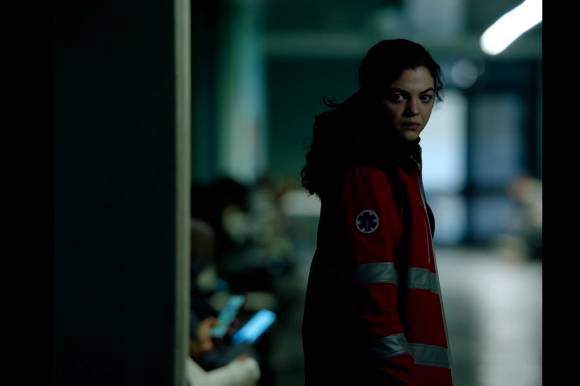
The feature films (excluding minority coproductions) completed in 2023 are: Whisper of a Butterfly directed by Alen Pavšar and produced by Almedia; Lunatic / Šterkijada directed by Igor Šterk and produced by A.A.C Production; Role Model / Vzornik directed by Nejc Gazvoda and produced by Perfo Production in coproduction with EvolutionFilms (Czech Republic), La Sarraz Pictures (Italy) and Biberche (Serbia); Shoting Blanks / Poslednji heroj directed by Žiga Virc and produced by Studio Virc in coproduction with Asphalt (Greece), Nukleus Film (Croatia), Levante Produzioni (Italy) and Asterisk Post (Greece); Kaj + Ester Forever / Kaj + Ester za vedno directed by Tosja Flaker Berce and produced by Temporama in coproduction with Gliser, Studio Arkadena, NuFrame and 001; Observing / Opazovanje directed by Janez Burger and produced by Staragara in coproduction with Propeler film (Croatia), Transmedia (Italy) and Kaval Film (North Macedonia); Something Sweet / Nekaj sladkega directed by Tin Vodopivec and produced by Sparks&Juice; Je kir ke riku? directed by Andrej Pratnemer and Denis Vengust, and produced by Pratnemer.
The long documentaries (excluding minority coproductions) completed in 2023 are: Pero directed by Damjan Kozole and produced by Vertigo in coproduction with RTV Slovenija and Korektif; Woman of God / Duhovnica directed by Maja Prettnar and produced by Studio Virc in coproduction with Al Jazeera (Quatar); Two Steps from the Baltic to the Adriatic / Dva koraka od Baltika do Jadrana (Slovenia, Italy) directed by Jan Mozetič and produced by Kinoatelje; and Through My Eyes / Skozi moje oči directed by Igor Vrtačnik and produced by Zavod Film Horizont. The 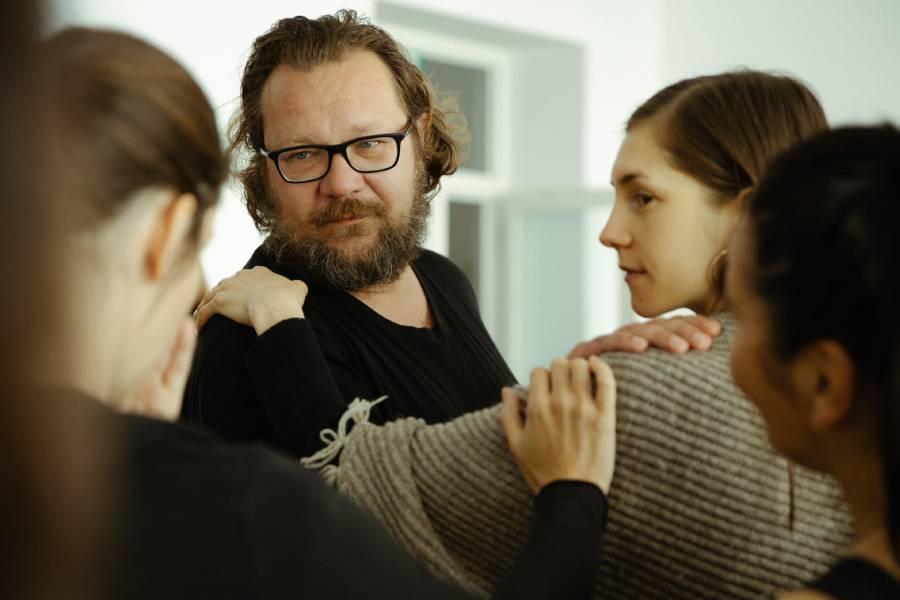 long experimental documentary Don't Think It Will Ever Go Away / Ne misli, da bo kdaj mimo directed by Tomaž Grom and produced by Zavod Sploh was also completed in 2023.
long experimental documentary Don't Think It Will Ever Go Away / Ne misli, da bo kdaj mimo directed by Tomaž Grom and produced by Zavod Sploh was also completed in 2023.
The following feature films (excluding minority coproductions) are expected to be completed in 2024: Hole / Jama directed by Dejan Babosek and produced by Narayan Production and Studio Ritem; Fantasy directed by Katarina Rešek – Kukla and produced by December in coproduction with Krug film (North Macedonia) and RTV Slovenija; Family Therapy / Odrešitev za začetnike directed by Sonja Prosenc and produced by Monoo; Tartini’s Key / Tartinijev ključ directed by Vinci Vogue Anžlovar and produced by Blade production in coproduction with RTV Slovenija and A-LAB (Italy); Little Trouble Girls directed by Urška Djukić and produced by SPOK Films in coproduction with Izazov 365 (Croatia), Staragara (Italy), Sister Productions (France) and Nosorogi; Ida Who Sang So Badly Even the Dead Rose Up and Joined Her in Song / Ida, ki je pela tako grdo, da so še mrtvi vstali od mrtvih in zapeli z njo directed by Ester Ivakič and produced by Temporama in coproduction with Dinaridi Film (Croatia) and Set Sail Films (Serbia); Ciao Bela / Čao bela, directed by Jani Sever and produced by Sever & Sever; Block 5 / Igrišča ne damo directed by Klemen Dvornik and produced by Aatalanta in coproduction with RTV Slovenija, Living Pictures (Serbia) and BFilm (Czech Republic); The Lost Son / Izgubljeni sin directed by Darko Štante and produced by Staragara in coproduction with Propeler Film, Silk Films (Czech Republic) and Tansmedia produkcija (Italy); Hidden People / Skriti ljudje directed by Miha Hočevar and produced by Vertigo.
The docu-fiction Tales of Fruits and Monsters / Sadni film directed by Gregor Božič and produced by Nosorogi in coproduction with Bocapulco Films is expected to start shooting in 2024.
The following long documentaries (excluding minority coproductions) are expected to be completed in 2024: Cent´anni directed by Maja Prelog and produced by Cvinger film in coproduction with Agresywna Banda (Poland), Zena film (Italy) and Zwinger film (Austria); The Volta Cinema / Kino Volta directed by Martin Turk and produced by Faubla in coproduction with Quasar 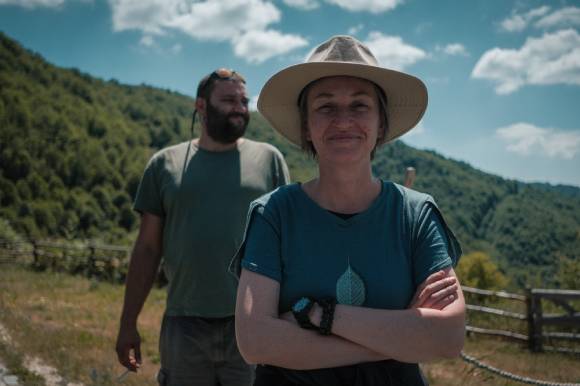 Multimedia (Italy), RTV Slovenija and Planet Korda Pictures (Ireland); Land of Sar / Dežela šarplaninca directed by Petra Seliškar and produced by Petra Pan Film; Was There Anything Avant-garde? / Ali je bilo kaj avantgardnega? directed by Matevž Jerman, Jurij Meden and produced by Temporama in coproduction with Kinoteka; The Silence of Life / V tišini življenja directed by Nina Blažin and produced by Casablanca in coproduction with RTV Slovenija and Incipit film (Italy).
Multimedia (Italy), RTV Slovenija and Planet Korda Pictures (Ireland); Land of Sar / Dežela šarplaninca directed by Petra Seliškar and produced by Petra Pan Film; Was There Anything Avant-garde? / Ali je bilo kaj avantgardnega? directed by Matevž Jerman, Jurij Meden and produced by Temporama in coproduction with Kinoteka; The Silence of Life / V tišini življenja directed by Nina Blažin and produced by Casablanca in coproduction with RTV Slovenija and Incipit film (Italy).
The following feature films (excluding minority coproductions) are in (post)production in 2024 and expected to be completed in 2025: Everything That’s Wrong With You / Vse, kar je narobe s tabo directed by Urša Menart and produced by Vertigo in coproduction with Thalia Production (Serbia) and RTV Slovenija; and This Is a Robbery! / To je rop! directed by Gregor Andolšek and produced by Temporama in coproduction with RTV Slovenija, 001 and NuFrame.
The following feature films (excluding minority coproductions) are expected to start shooting in 2024: Girl of the Night directed by Luka Marčetič and produced by Temporama; FC Freedom / NK Svoboda directed by Boris Petkovič and produced by Iridium film; Whites Wash at Ninety / Belo se pere na devetdeset directed by Marko Naberšnik and produced by Perfo Production; Elvis Škorc, Clever Klutz / Elvis Škorc, genialništor directed by Boris Jurjaševič and produced by Fabula; A Way Away / Pot stranpot directed by Sara Kern and produced by Spok; Hotel Alcohol / Hotel Alkohol directed by Jan Cvitkovič and produced by Staragara; and 20 Meters / 20 metrov directed by Damjan Kozole and produced by Vertigo.
The following feature films (excluding minority coproductions) are in preproduction in 2024: Taming the Wicked / Divjad directed by Dominik Mencej and produced by Temporama; FC Freedom / NK Svoboda directed by Boris Petkovič and produced by Iridium film in coproduction with Homemade Films (Greece), Antitalent (Croatia) and Manderley Films (Germany); and Čista in zakopana directed by Martin Turk and produced by Bela film.
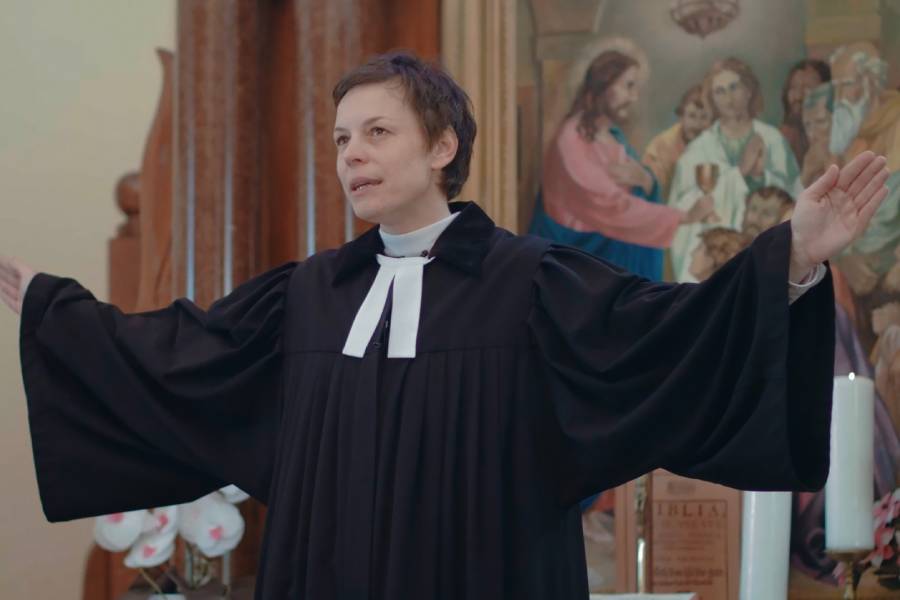 The 25% cash rebate scheme, introduced in 2017, helps to stimulate the shooting of foreign productions in Slovenia. In 2023, a total of 1,285,300 EUR was allocated for 11 projects, compared to 2,773,555 EUR for eight projects in 2022 and 1,899,503 EUR in 2021.
The 25% cash rebate scheme, introduced in 2017, helps to stimulate the shooting of foreign productions in Slovenia. In 2023, a total of 1,285,300 EUR was allocated for 11 projects, compared to 2,773,555 EUR for eight projects in 2022 and 1,899,503 EUR in 2021.
The feature films benefiting from the cash rebate scheme in 2023 were: Alpha directed by Jan Willem Van Ewijk, produced by BALDR Film BV (the Netherlands) and coproduced from Slovenia by Staragara; Bachelorette Party 2 / Addio al nubilato 2 directed by Francesco Apolloni, produced by Minerva Pictures group S.R.L. (Italy) and coproduced from Slovenia by Staragara; Back in Action directed by Seth Gordon, produced by Oasis Productions Limited (UK) and coproduced by Pakt Media from Slovenia; and Last Shadow of First Light directed by Nicole Midori Woodford, produced by Protocol (Singapore) and coproduced from Slovenia by Studio Virc.
Fiction TV series benefiting from the cash rebate scheme in 2023 were: Hallo directed by Dannie Gordon, produced by Silver Entertainment Kft (Hungary) and coproduced from Slovenia by Pakt Media; The Wheel of Time directed by Ciaran Donnely, Thomas Napper and Marta Cunnighan, produced by Little Islands Production Ltd (UK) and coproduced from Slovenia by Pakt Media; and the complete season of TV series Dates in Real Life directed by Jakob Rorvik, produced by Maipo film (Norway) and coproduced from the Slovenian side by Staragara.
Documentary TV series benefiting from the cash rebate scheme in 2023 were: Wolves in the Fold directed by David Sipos, produced by Eternal Word Television Network, INC (USA) and coproduced from Slovenia by Studio Siposh; Doctors of the Church directed by David Sipos, produced by Eternal Word Television Network, INC (USA) and coproduced from Slovenia by Studio Siposh; Brown Scapular / Rjavi Škapulir directed by Vid Planinc, produced by Eternal Word Television Network, INC (USA) and coproduced from Slovenia by Studio Siposh; and Food Markets in the Belly of the City Ljubljana / Tržnica produced by Stefilm International S.r.l. (Italy) and coproduced from Slovenia by Zavod Rusalka.
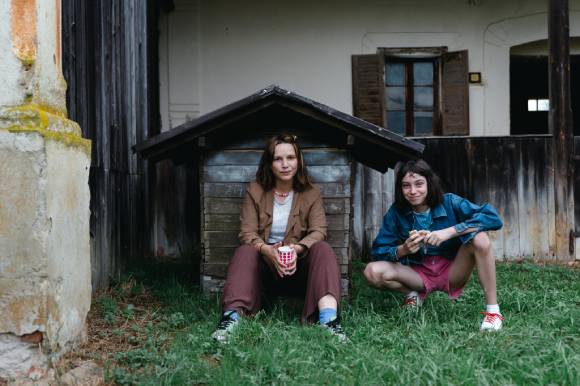 DISTRIBUTION
DISTRIBUTION
The number of films released in cinemas in 2023 was 202, which is a little higher than in 2022 (174).
Fourteen full-length Slovenian films (seven feature films, five long documentaries, one experimental documentary and one docu-fiction) competed for the Vesna awards, in addition to two coproduction feature titles which were screened at the annual showcase of Slovenian film, the 26th Festival of Slovenian Film Portoroz, which ran from 3 to 8 October 2023.
Tomaž Grom’s Don't Think It Will Ever Go Away, produced by Zavod Sploh, won the Vesna Award for Best Film at the 26th Festival of Slovenian Film Portoroz, together with another Vesna award for music, composed by the director himself.
Marko Šantić’s Wake Me, produced by Vertigo, coproduced by Living Pictures Serbia and
Jaka Produkcija Croatia, won the Vesna Award for Best Feature Film together with another four Vesna Awards for Screenplay, Best Actor, Best Supporting Actor and Make-up.
Petra Seliškar’s The Body, produced by Petra Pan Film, coproduced by PPFP North Macedonia and Wolfgang & Dolly Croatia, won the Vesna Award for Best Long Documentary.
Ivan Gergolet won the Vesna award for Best Director for The Man without Guilt, produced by Staragara, coproduced by Transmedia Italy and Propeler Film Croatia, together with the Slovenian Art Cinema Association Award and Iridium Award for Best Debut Feature.
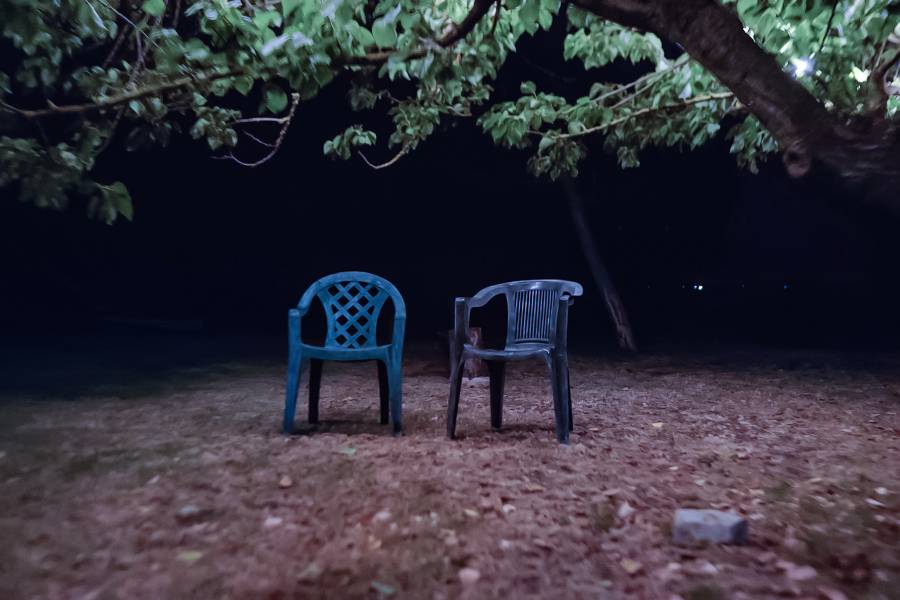 Maja Prettner's Woman of God, produced by Studio Virc, received the Vesna Audience Award together with the Vesna award for Editing, as well as the Slovenian Federation of Film Critics (FIPRESCI) Award.
Maja Prettner's Woman of God, produced by Studio Virc, received the Vesna Audience Award together with the Vesna award for Editing, as well as the Slovenian Federation of Film Critics (FIPRESCI) Award.
Safe Place by Juraj Lerotić, produced by Pipser, coproduced by December and Zelena Zraka, won the Vesna award for Best minority Slovenian coproduction and also for Best Photography.
In 2023, the Slovenian Film Centre organised eight retrospectives abroad, presenting the national film production to the international audience. Slovenian films were shown in Pula (Croatia), Sombotel, Budapest (Hungary), Belgrade (Serbia), Sarajevo (Bosnia and Herzegovina) and Germany. Slovenia was the guest of honour at the Frankfurt Book Fair, and Slovenian films were presented at Slovenian Focus at DOC Leipzig and in a Retrospective of Slovenian films at Kino Arsenal in Berlin.
International film festivals screened some of the latest Slovenian feature films in 2023: Man without a Guilt and Wake Me screened at Tallinn Black Nights FF, together with two long documentaries, Pero at Rotterdam FF and Body at the Sarajevo Film Festival.
The year 2023 was also successful for Slovenian minority coproductions: Guardians of the Formula by Dragan Bjelogrlić (produced by Cobra Film, coproduced by Ton Film, Perfo Production, Bitter Frames Production, Skopje Film Studio) premiered at Locarno FF and won the Variety Piazza Grande Award as well as the Pardo Verde Ricola Award (together with the Audience Award for best film at the Sarajevo Film Festival). Not a Word by Hanna Slak, produced by Volte, coproduced by Tramal Films and Ici et Là Productions, premiered at the Toronto FF, and 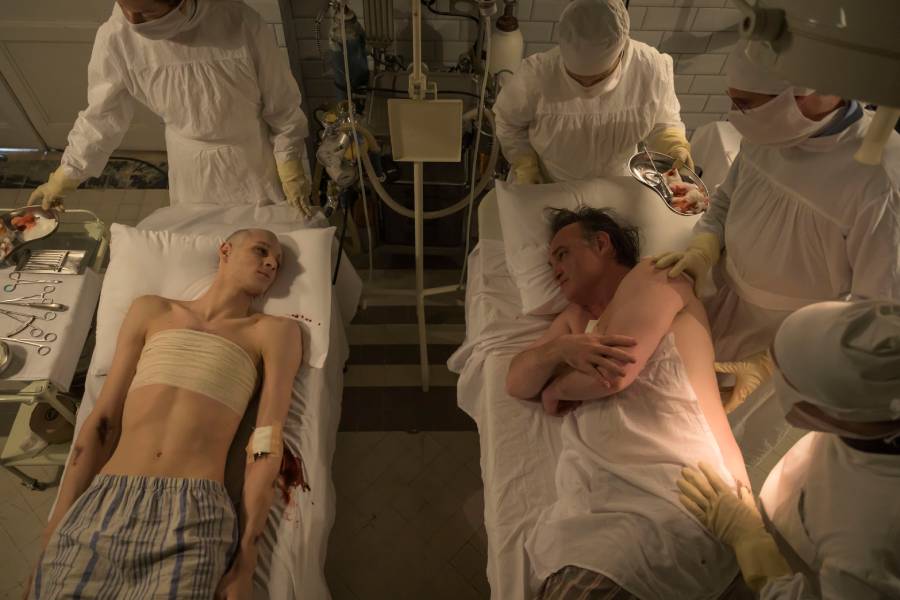 Forever Hold Your Peace by Ivan Marinović, produced by Adriatic Western, coproduced by Sense Production, Analog Vision, Kinorama, Krug Film and SPOK Films, premiered at Tallinn FF.
Forever Hold Your Peace by Ivan Marinović, produced by Adriatic Western, coproduced by Sense Production, Analog Vision, Kinorama, Krug Film and SPOK Films, premiered at Tallinn FF.
The leading position among distributors in 2023 belongs to Blitz Film & Video Distribution with 45% admissions share, followed by Karantanija Cinemas (33%), Continental Film (9%), Fivia (8%), Cinemania Group (3%) and Demiurg (2%).
The leading Slovenian distributor Blitz Film & Video Distribution is strongly connected to its mother company in Croatia and it releases mostly commercial films from major Hollywood studios (Warner Bros., Fox, Disney), as well as Continental (Sony/Columbia). Karantanija Cinemas distributes some major (UIP) and independent titles, while smaller Slovenian distribution companies (Fivia, Cinemania Group, Demiurg) distribute independent, domestic and European films. In 2023 their admissions share decreased to 13% from 16% in 2022.
VOD PLATFORMS AND ONLINE DISTRIBUTION
The leading and only S-VOD platform is still VOYO (produced by Pro plus), followed by AVOD platform 365 (produced by RTV Slovenija), while Planet Group’s AVOD platform Planeteka closed.
The Slovenian Film Database, which is successfully operating as the main Slovenian online database platform, enables online viewing of a selection of Slovenian films on its platform, some of them free of charge.
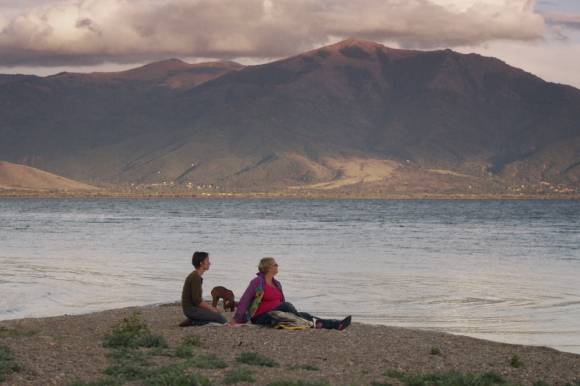 The common VOD platform, online.artkinomreza.si, which was started in 2020 by the leading art house cinema Kinodvor along with the members of the Slovenian Art Cinema Association, is successfully operating. Nineteen art house cinemas, including Kinodvor, are using this platform for their online screenings.
The common VOD platform, online.artkinomreza.si, which was started in 2020 by the leading art house cinema Kinodvor along with the members of the Slovenian Art Cinema Association, is successfully operating. Nineteen art house cinemas, including Kinodvor, are using this platform for their online screenings.
EXHIBITION AND BOX OFFICE
Slovenian average annual cinema admissions before the pandemic had usually been around 2.5 m and generated around 12 m EUR per year. In 2023, the admissions remained almost the same and the box office slightly increased compared to 2022. Total admissions still did not reach the pandemic results, but box office did, generally because of the higher ticket prices.
There are around 50 operating cinemas with 106 screens (of which 101 are digital), and the average ticket price is around 6.2 EUR.
Most of the Slovenian attendance is generated by the multiplex chain Cineplexx, which operates in Ljubljana, Maribor, Celje, Kranj, Koper, Murska Sobota and Novo mesto.
Kolosej Ljubljana, the first and the largest Slovenian cineplex, which started operating in 2001, was sold in September 2022, but it was still operating till March 2023, when it was finally closed due to financial problems of the company Kolosej Kinematografi.
Maribor, the second largest Slovenian city, has two multiplexes, Cineplexx and Maribox, operated by Projektor from June 2017.
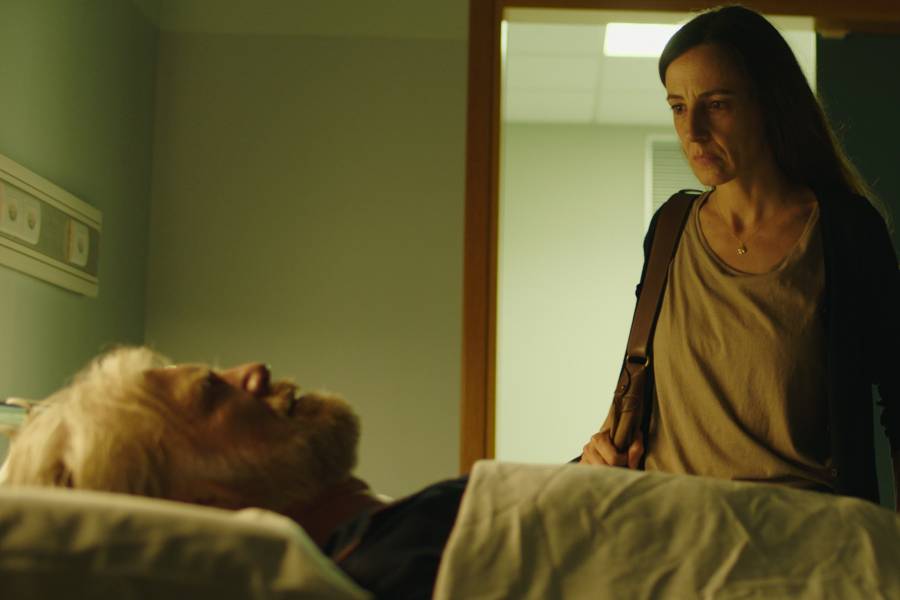 Other cinema theatres try to balance commercial and art house films. Most of them are members of the Slovenian Art Cinema Asociation, which currently has 28 active members. The leading art house cinema is Kinodvor, whose director is Metka Dariš.
Other cinema theatres try to balance commercial and art house films. Most of them are members of the Slovenian Art Cinema Asociation, which currently has 28 active members. The leading art house cinema is Kinodvor, whose director is Metka Dariš.
In 2023, the admissions were 1,887,956 (compared to 1,844,430 in 2022) and the box office was 12,828,614 EUR (compared to 11.507 m EUR in 2022), which represents almost equal admissions and some increase in the box office.
The top titles on the overall chart were US action hits and animated films, joined by only one domestic title. The leading position belongs to Barbie (with 122,046 admissions and 828,690 EUR gross), followed by Avatar: The Way of Water (with 99,070 admissions and 942,953 EUR gross) and Oppenheimer (with 81,651 admissions and 661,744 EUR gross). In the next positions within the first ten we find the only domestic tittle, Whisper of a Butterfly directed by Alen Pavšar, produced by Almedia, distributed by Constantin Film, another US blockbuster Fast X and five family and/or animated films, The Super Mario Bros. Movie, Paw Patrol: The Mighty Movie, Elemental, Torlls Band Together, Puss in Boots: The Last Wish.
The 2023 admissions for domestic films were 201,746 and the box office was 1,034,080 EUR. It represents a 36% drop in admissions (compared to 315,084 in 2022) and 38% drop in box office (1,659,316 EUR in 2022), which means a significant fall compared to the record breaking previous year, when domestic titles represented the highest share in total cinema attendance since Slovenia regained independence (17% share in admissions and 14% share in the box office), mainly due to the success of the At Hostar 2‰ directed by Luka Marčetić, produced by Kerlc Film in coproduction with Iridum Film.
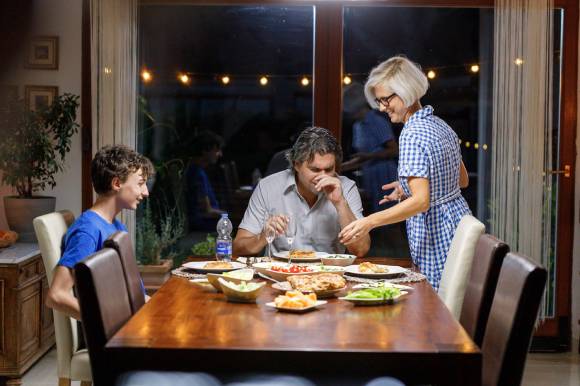 The top domestic title in 2023 was Whisper of a Butterfly by Alen Pavšar with 66,288 admissions and 326,504 EUR gross, followed by Grandpa Goes South by Vinci Vogu Anžlovar, produced by A Atalanta, with 33,600 admissions and 188,178 EUR gross, and Je kir ke riku? by Andrej Pratnemer and Denis Vengust, produced by Pratnemer, with 28,345 admissions and 166,397 EUR gross.
The top domestic title in 2023 was Whisper of a Butterfly by Alen Pavšar with 66,288 admissions and 326,504 EUR gross, followed by Grandpa Goes South by Vinci Vogu Anžlovar, produced by A Atalanta, with 33,600 admissions and 188,178 EUR gross, and Je kir ke riku? by Andrej Pratnemer and Denis Vengust, produced by Pratnemer, with 28,345 admissions and 166,397 EUR gross.
The Slovenian film with the most admissions since 1991 is still At Hostar / Pr’ Hostar directed by Luka Marčetić, with 211,604 admissions, followed by Going Our Way / Gremo mi po svoje (2010) directed by Miha Hočevar, produced by Vertigo/Emotionfilm in coproduction with RTV Slovenija, with 205,439 admissions.
The biggets film festival in Slovenia is the Ljubljana IFF, organised by Cankarjev dom. A total of 88 feature films and around 20 short films were screened (and some of them also presented online) at its 34th edition, which was held from 8 to 19 November 2023.
GRANTS AND NEW LEGISLATION
The main film institution in Slovenia is the Slovenian Film Centre (SFC), a public agency established in 2010 and replacing the Slovenian Film Fund. Its goal is to encourage creativity by providing suitable conditions for audiovisual activities.
The SFC supports national film production, postproduction, distribution and film festivals. In theory, its funding sources should come from the state budget, the agency’s own income, partnership with international organisations, donations and sponsorships. In practice, the majority of its funding is in the form of a subsidy from the Ministry of Culture, with the amount 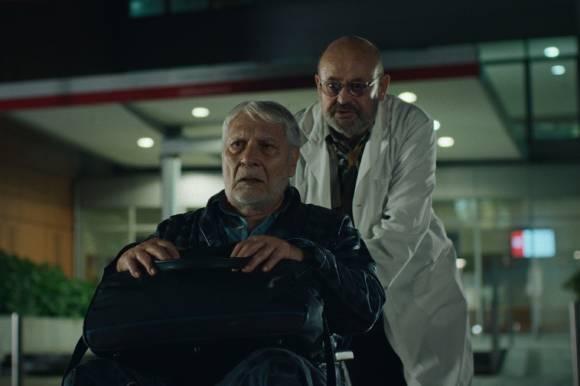 depending on the annual budget of the country.
depending on the annual budget of the country.
The managing director of the SFC is Nataša Bučar, reappointed in November 2021 for the next five years till 2026. She and her team are trying to follow the four-year national strategy, announced in November 2019, and they are involved in the drafting of a new media law.
In February 2023, the Slovenian Federation of Filmmakers’ Guilds (ZDSFU) started to prepare a new strategic plan for the development of the Slovenian audiovisual industry until 2030, aiming to boost its potential. The summaries and guidelines of the document have already been forwarded to the Cabinet of the Prime Minister. The main vision of the strategic plan is for the audiovisual industry in Slovenia to become the driving force of Slovenian culture and an important pillar of the Slovenian economy by 2030.
The vision of the SFC and its general strategic goals in the coming period from 2020 to 2024 entail the implementation of a transparent and modern system to ensure a sustainable, functional and stable film environment.
Since its launch, the SFC has been deeply involved in the production of domestic films. Other sources of support originate from the national television RTV Slovenija, coproductions, services backed by the state and provided by the FS Viba film studio in the form of technical assistance, from international film funds and institutions.
In 2023 the SFC received 8.975 m EUR for running costs, film funding and other activities (compared to 6.667 m EUR in 2022), of which 8.026 m EUR all together went to film productions, 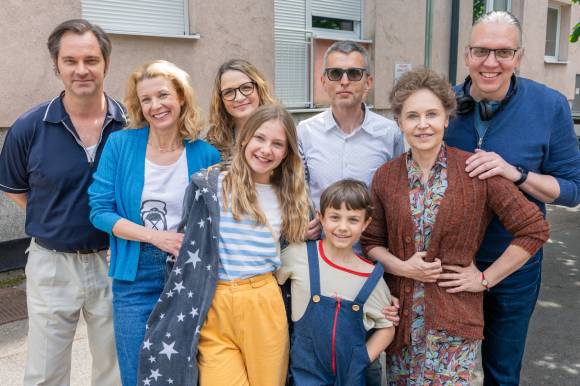 and other activities. The goal, announced in 2018, that the annual budget for film production should gradually increase and reach 11 m EUR by 2022, has not yet been achieved.
and other activities. The goal, announced in 2018, that the annual budget for film production should gradually increase and reach 11 m EUR by 2022, has not yet been achieved.
In 2023, the SFC announced 14 public tenders (compared to 13 in 2022) and awarded grants totalling 6.329 m EUR (compared to 5.682 m EUR in 2022).
A total of 5.897 m EUR (compared to 6.171 m EUR in 2022) went to film production (feature films, documentaries, animated films, including development support). A total of 432,012 EUR (compared to 347,581 EUR in 2022) was allocated to festivals, film education, international promotion and professional associations.
The restoration of Slovenian classics continued in 2023 with the following titles: Little Shepherds / Pastirci directed by France Štiglic (1973, Viba Film and Kinematografi Zagreb); The Merry Wedding / Veselo gostivanje directed by France Štiglic (1984, Viba Film); Dance in the Rain / Ples v dežju directed by Boštjan Hladnik (1961, Triglav film); and Cafe Astoria / Kavarna Astoria directed by Jože Pogačnik (1989, Viba Film).
TV
In the last few years, according to the Law on the Slovenian Film Centre, the public broadcaster RTV Slovenija has been obliged to invest in independent film and AV projects.
The national television RTV Slovenija and the leading commercial TV channel Pro plus still play a key role in the domestic production, partly joined by Planet Group.
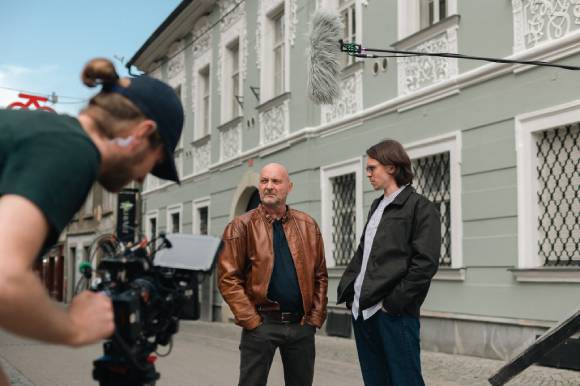 RTV Slovenija makes up to five feature and documentary films per year, and it acts as a regular coproducer to domestic films. In 2023, RTV Slovenija continued shooting its own production, the new season of crime series Cases of Inspector Vrenko / Primeri inšpektorja Vrenka directed by Slobodan Maksimović and Boris Jurjašević, and based on a series of novels by Tomaž Zupančič alias Avgust Demšar.
RTV Slovenija makes up to five feature and documentary films per year, and it acts as a regular coproducer to domestic films. In 2023, RTV Slovenija continued shooting its own production, the new season of crime series Cases of Inspector Vrenko / Primeri inšpektorja Vrenka directed by Slobodan Maksimović and Boris Jurjašević, and based on a series of novels by Tomaž Zupančič alias Avgust Demšar.
Planet Group produced entertainment shows Married at First Sight / Poroka na prvi pogled, and Wheel of Fortune / Kolo sreče, as well as culinary shows Riba, Raca, Rak and Dinner For Five / Večerja za pet.
The strongest commercial television, Pro plus, continued to produce TV series and entertainment shows. The new series of Camping Royals / Skrito v raju directed by Nikolaj Vodošek, as well as new seasons of reality and entertainments shows such as MasterChef Slovenija, Slovenia’s Got Talent / Slovenija ima talent, Farm / Kmetija, Home Makeover / Delovna akcija, Food Truck / Kuhinja na kolesih and Kid Cooks / Mali šef Slovenije were produced.
Pro plus also continued to produce domestic TV series for its SVOD platform VOYO: House of Love / Hiša ljubezni and new episodes of The Kitchen / Ja, Chef!.
The leading commercial TV Pro plus with its five channels (POP TV, KANAL A, KINO, BRIO and OTO) made its leading position even stronger with news, reality shows, local TV series, sport events and foreign programming. It is followed by the national television RTV Slovenija with its three national channels, and another commercial television, Planet Group, which is 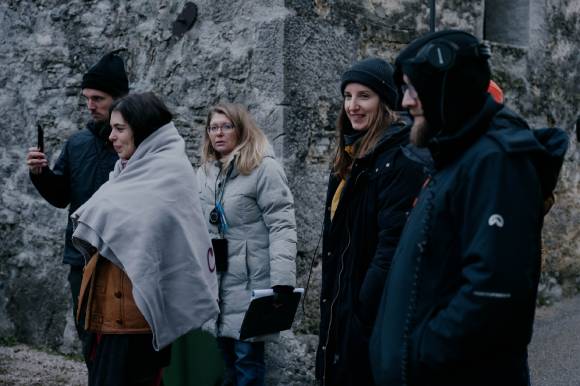 regaining its market share with its three channels. Other significant players are foreign cable TV channels Fox Group, Cas Media, HBO Europe; TV3 medias, and several ex-Yugoslavian TVchannels.
regaining its market share with its three channels. Other significant players are foreign cable TV channels Fox Group, Cas Media, HBO Europe; TV3 medias, and several ex-Yugoslavian TVchannels.
Prime time in Slovenian television is generally held by news (24 ur, Dnevnik), reality and entertainment shows (Masterchef, Farmer Wants a Wife, Love at First Sight, Who Wants to Be a Millionaire?, Fake News, V petek zvečer, Wheel of Fortune, Married at First Sight, The Real Housewives Slovenija, Joker), and domestic fiction such as the drama TV series Cases of Inspector Vrenko, directed by Slobodan Maksimović and Boris Jurjašević and produced by RTV Slovenija, airing on TV Slovenija 1.
In 2023 Pro plus remained the leading television in Slovenia with a prime time share of 46.8%, followed by RTV Slovenija with 16.5%, Planet Group with 7.2%, and other TV channels with a total of 29.5%.
CONTACTS:
SLOVENIAN FILM CENTRE
Miklošičeva 38
SI - 1000 Ljubljana
Phone: +386 (0)1 23 43 200
Fax: +386 (0)1 23 43 219
This email address is being protected from spambots. You need JavaScript enabled to view it.
www.sfc.si
SLOVENIA FILM COMMISSION
Miklošičeva 38
SI - 1000 Ljubljana
Phone: +386 (0)3 23 43 200
Fax: +386 (0)1 23 43 219
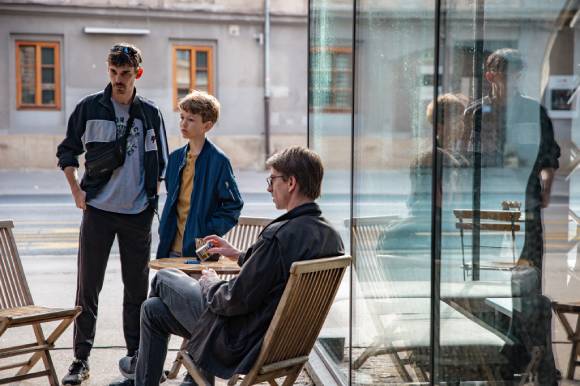 MINISTRY OF CULTURE OF REPUBLIC OF SLOVENIA
MINISTRY OF CULTURE OF REPUBLIC OF SLOVENIA
Maistrova ulica 10
SI - 1000 Ljubljana
Phone: +386 (0)1 369 59 00
Fax: +386 (0)1 369 59 01
This email address is being protected from spambots. You need JavaScript enabled to view it.
www.mk.gov.si
FS VIBA
Stegne 5
SI - 1000 Ljubljana
Phone: + 386 (0)1 5132 402
Fax: + 386 (0)1 5132 550
This email address is being protected from spambots. You need JavaScript enabled to view it.
www.vibafilm.si
SLOVENIAN ART CINEMA ASOCIATION
Fancetova ulica 5
2380 Slovenj Gradec
This email address is being protected from spambots. You need JavaScript enabled to view it.
www.artkinomreza.si/
Report by Damijan Vinter (2023)
Sources: the Slovenian Film Centre, the Ministry of Culture, Fivia/Cenex

MARKET ANALYSIS 2022
LJUBLJANA: In 2022 the impact of the COVID-19 pandemic on cinema exhibition and film production faded away. Shooting was restored and several film projects, interrupted or postponed because of the COVID-19 restrictions in 2021, were successfully finished or continued production.
The cinema attendance climbed up close to pre-COVID-19 numbers with 1.844 m admissions, representing a 160% increase compared to 2021 and 80% of the admissions in 2019. Film distribution and cinema releases almost completely recovered. Additionally, record-breaking admissions for domestic films were achieved, representing a 17% share of the total admissions (previously around 5%).
The Slovenian Film Centre (SFC), which had announced a new strategy for the next four years in November 2019, received 6.667 m EUR for running costs, film funding and other activities in 2022 (6.620 m EUR in 2021). The goal, announced in 2018, that the annual budget for film production should gradually increase and reach 11 m EUR by 2022, has not been achieved, but the forecast is optimistic while reportedly 8.785 m EUR is secured for 2023.
On 8 June 2022 Asta Vrečko was appointed as the new Minister of Culture of Slovenia, replacing Vasko Simoniti.
PRODUCTION
Slovenian producers usually produce around 15 feature films and long documentaries per year. In 2022 the number of completed film was significantly higher and prognoses for 2023 are very optimistic too, especially expecting many films by female directors and debut features.
The majority of new Slovenian productions are coproductions with other ex-Yugoslavian and bordering EU countries. Foreign producers’ share in the investments in Slovenian majority projects is around 30%, and the number of foreign coproductions is increasing.
Twenty-eight feature films (14 feature films and 14 long documentaries), including coproductions, were completed or/and released in 2022, of which 25 were supported by the SFC.
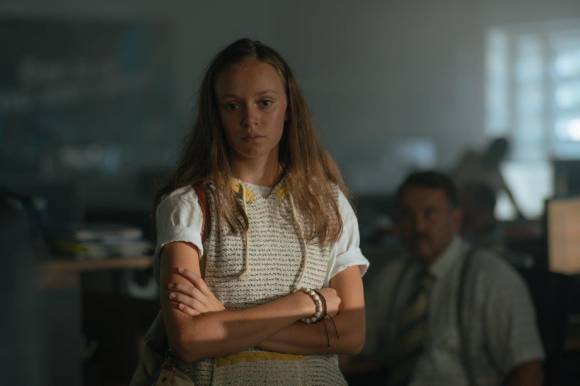 In 2023 thirteen films (six feature films and seven long documentaries) are expected to be completed.
In 2023 thirteen films (six feature films and seven long documentaries) are expected to be completed.
Twelve feature films are expected to start shooting in 2023.
The feature films (excluding minority coproductions) completed in 2022 are: Grandpa Goes South / Dedek gre na jug directed by Vinci Vogu Anžlovar and produced by A Atalanta in coproduction with Sektor Film (North Macedonia); Gaja's World 2 / Gajin svet 2 directed by Peter Bratuša and produced by Felina Film; Bird Breeder / Ptičar directed by Robert Črnelč and produced by Tramal films; Wake Me / Zbudi me directed by Marko Šantić and produced by Vertigo; Man Without a Guilt / Mož brez krivde directed by Ivan Gergolet and produced by Staragara in coproduction with Transmedia (Italy) and Antitalent (Croatia); At Hostar 2‰ / Pr’ Hostar 2‰ directed by Luka Marčetič and produced by Pro plus.
The following long documentaries (excluding minority coproductions) were completed in 2022: Canabis Sets You Free / Konoplja osvobaja directed by Miha Čelar and produced by Astral film in coproduction with RTV Slovenija, AWARD Film & Video, Wolfgang i Dolly (Croatia), Quasar Multimedia (Italy); LGBT_SLO_1984 directed by Boris Petkovič and produced by Zavod Kineki in coproduction with Katapult; The Body / Telo directed by Petra Seliškar and produced by Petra Pan Film in coproduction with Wolfgang & Dolly (Croatia) and PPFP (North Macedonia); Sarajevo Safari directed by Miran Zupanič and produced by Arsmedia in coproduction with MB Grip, Zvokarna, Iridum Film and Aljazzear Balkans (Bosnia and Herzegovina); One for the River: The Sava Story / Ena za reko: Zgodba Save directed by Rožle Bregar and produced by Leeway Collective in coproduction with Vizualist, Legitfilms; Wracked Piano / Pošvedrani klavir directed by Miha Vipotnik and produced by Casablanca in coproduction with RTV Slovenija. The long experimental documentary Atlas / Atlas directed by Juš Premrov and produced by Temporama was also completed in 2022.
The following feature films (excluding minority coproductions) are expected to be completed in 2023: Šterkijada directed by Igor Šterk and produced by A.A.C Production; Role Model / Vzornik directed by Nejc Gazvoda and produced by Perfo Production in coproduction with Evolution Films (Czech Republic), La Sarraz Pictures (Italy) and Biberche (Serbia); Shooting Blanks / Poslednji heroj directed by Žiga Virc and produced by Studio Virc in coproduction with Asphalt (Greece), Nukleus Film (Croatia), Levante Produzioni (Italy), Asterisk Post (Greece); Kaj + Ester Forever / Kaj + Ester za vedno directed by Tosja Flaker Berce and produced by Temporama in coproduction with Gliser, Studio Arkadena, NuFrame and 001; Observation / 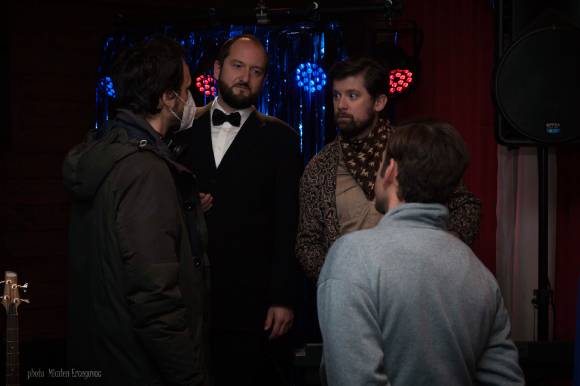 Opazovanje directed by Janez Burger and produced by Staragara in coproduction with Propeler film (Croatia), Transmedia (Italy) and Kaval Film (North Macedonia); Redemption / Odrešitev directed by Sonja Prosenc and produced by Monoo.
Opazovanje directed by Janez Burger and produced by Staragara in coproduction with Propeler film (Croatia), Transmedia (Italy) and Kaval Film (North Macedonia); Redemption / Odrešitev directed by Sonja Prosenc and produced by Monoo.
The following long documentaries (excluding minority coproductions) are expected to be completed in 2023: Cent´anni directed by Maja Prelog and produced by Cvinger film in coproduction with Agresywna Banda (Poland), Zena film (Italy) and Zwinger film (Austria); Pero directed by Damjan Kozole and produced by Vertigo in coproduction with RTV Slovenija and Korektif; The Volta Cinema / Kino Volta directed by Martin Turk and produced by Faubla in coproduction with Quasar Multimedia (Italy), RTV Slovenija and Planet Korda Pictures (Ireland); Land of Sar / Dežela šarplaninca directed by Petra Seliškar and produced by Petra Pan Film; Woman of God / Duhovnica directed by Maja Prettnar and produced by Studio Virc in coproduction with Al Jazeera (Quatar); The Table / Misa directed by Neli Maraž and produced by Cvinger film; Was There Anything Avant-garde? / Ali je bilo kaj avantgardnega? directed by Matevž Jerman & Jurij Meden and produced by Temporama in coproduction with Kinoteka; The Silence of Life / V tišini življenja directed by Nina Blažin and produced by Casablanca in coproduction with RTV Slovenija and Incipit film (Italy).
The following feature films (excluding minority coproductions) are in preproduction and are expected to start shooting in 2023: Tartini’s Key / Tartinijev ključ directed by Vinci Vogue Anžlovar and produced by Blade production in coproduction with RTV Slovenija and A-LAB (Italy); Little Trouble Girls directed by Urška Djukić and produced by SPOK Films in coproduction with Izazov 365 (Croatia), Staragara (Italy), Sister Productions (France) and Nosorogi; Fantasy directed by Katarina Rešek – Kukla and produced by December in coproduction with Krug film (North Macedonia) and RTV Slovenija; Neither Voice / Noben glas directed by Ester Ivakič and produced by Temporama in coproduction with Dinaridi Film (Croatia) and Set Sail Films (Serbia); Ciao Bela / Čao bela directed by Jani Sever and produced by Sever & Sever; Block 5 directed by Klemen Dvornik and produced by Aatalanta in coproduction with RTV Slovenija, Living Pictures (Serbia) and BFilm (Czech Republic); Everything That’s Wrong with You / Vse, kar je narobe s tabo directed by Urša Menart and produced by Vertigo in coproduction with Thalia Production (Serbia) and RTV Slovenija; The Lost Son / Izgubljeni sin directed by Darko Štante and produced by Staragara in coproduction with Propeler Film, SilkFilms (Czech Republic) and Transmedia produkcija (Italy); FC Freedom / NK Svoboda directed by Boris Petkovič and produced by Iridium film in coproduction with Homemade Films (Greece), Antitalent (Croatia) and Manderley Films (Germany); This Is a Robbery! / To je rop! directed by Gregor Andolšek and produced by Temporama in coproduction with RTV Slovenija, 001 and NuFrame; 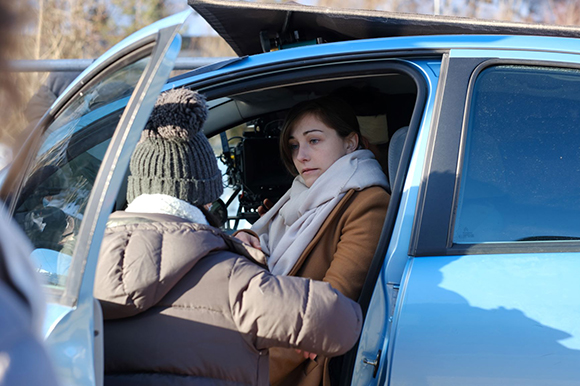 Girl of the Night / Dekle noči directed by Luka Marčetić and produced by Temporama; Hidden People / Skriti ljudje directed by Miha Hočevar and produced by Vertigo. Aditionally, the docu-fiction feature Tales of Friuts and Monsters / Sadni film, directed by Gregor Božič and produced by Nosorogi in coproduction with Bocapulco Films, is expected to start shooting in 2023.
Girl of the Night / Dekle noči directed by Luka Marčetić and produced by Temporama; Hidden People / Skriti ljudje directed by Miha Hočevar and produced by Vertigo. Aditionally, the docu-fiction feature Tales of Friuts and Monsters / Sadni film, directed by Gregor Božič and produced by Nosorogi in coproduction with Bocapulco Films, is expected to start shooting in 2023.
The following long documentaries (excluding minority coproductions) are in preproduction and are expected to start shooting in 2023: 2 brata, 2 sestri directed by Miha Čelar and produced by Astral film; and Naša dediščina directed by Dominik Mencej and produced by Zuhr.
The 25% cash rebate scheme introduced in 2017 helps to stimulate the shooting of foreign productions in Slovenia. In 2022 a total of 2.773 m EUR was allocated for eight projects, compared to 336,829 EUR in 2021 and 1 m EUR in 2020. Five of them were feature films, one episode of a TV series (The Witcher directed by Stephen Surjik, produced by Netflix and coproduced on the Slovenian side by Pakt Media), one long documentary (Lala directed by Ludovica Fales, produced by Transmedia and coproduced on the Slovenian side by Staragara) and one short documentary (Great Minds directed by Hyenusui Choi, produced by EBS and coproduced on the Slovenian side by Nora).
The feature films that used the cash rebate scheme in 2022 were: Safe Place / Varno mesto directed by Juraj Lerotić and produced by Pipser (Croatia) in coproduction with December; Midva directed by Giuseppe Battiston and produced by Rosamont (Italy) in coproduction with Staragara; Verižna reakcija directed by Dragan Bjelogrlić and produced by Cobra film (Serbia) in coproduction with Perfo Production; Not a Word / Niti besede directed by Hana Slak and produced by Volte (Germany) in coproduction with Tramal films; and Zveza directed by Julian Farino and produced by Netflix in coproduction with Pakt Media.
DISTRIBUTION
The number of films released in cinemas in 2022 was higher than in 2021, close to the pre-COVID years.
Eleven new domestic films (seven feature films and four long documentaries), together with five long documentaries dedicated to the 30th anniversary of Slovenia's independence, and six Slovenian minority coproductions, screened at the annual showcase of Slovenian film, the 25th Festival of Slovenian Film Portorož, which ran 25 - 30 October 2022.
Orchestra directed by Matevž Luzar won the Vesna Award for best film along with awards for script and cinematography at the 25th Festival of Slovenian Film Portorož (25 - 30 October  2022). The film was produced by Gustav Film in coproduction with RTV Slovenija, Napravi Film, Pihalni orkester Svea Zagorje, 001, Ready on Set, Unicasting, Noella and Sindikat.
2022). The film was produced by Gustav Film in coproduction with RTV Slovenija, Napravi Film, Pihalni orkester Svea Zagorje, 001, Ready on Set, Unicasting, Noella and Sindikat.
Sara Kern won the Vesna Award for best director for Moja Vesna and Loti Kovačič won the Vesna Award for best actress in the same film. This Slovenian/Australian coproduction was produced by Cvinger film and Sweetshop & Green.
Riders, directed by Domink Mencej and produced by Staragara in coproduction with Antitalent, SENSE Production, Novi film, Transmedia, Nuframe and RTV Slovenija, won the Audience Award along with three other Vesna Awards: for best actor, editing and sound.
Teona Mitevska’s The Happiest Man in the World won Best Slovenian Minority Coproduction and two other prizes for achievement in costume design and make-up. This Macedonian/Belgian/Slovenian/Danish/Croatian/Bosnian film was produced by Sisters and Brother Mitevski in coproduction with Entre chien et loup, Vertigo, Frau Film, Terminal 3 and SCCA/PRO.BA
In 2022, SFC organised nine retrospectives abroad, presenting the national film production to the international audience. Additionally to Serbia, Bosnia and Herzegovina, Hungary, Croatia, and Germany, Slovenian films were firstly presented in Paris.
International film festivals screened some of the latest Slovenian feature films. Moja Vesna screened at the Berlin IFF, Bitch, a Derogatory Term for a Woman at the Sydney Film Festival, Riders at the Sarajevo Film Festival, Man without a Guilt and Wake Me at Tallinn FF.
The list of feature films awarded at international film festivals includes: Orchestra directed by Matevž Luzar and produced by Gustav Film, Riders directed by Dominik Mencej and produced by Staragara in coproduction with SENSE Production (Serbia), Antitalent (Croatia), Novi Film (Bosnia & Herzegovina) and Transmedia (Italy), and Beanie directed by Slobodan Maksimović and produced by Senca Studio in coproduction with Wady Films, Objectif, Studio Dim, RTV Slovenija, RTVS.
Among the short films awarded at international film festivals are: Steakhouse directed by Špela Čadež and produced by Finta (which also won a Vesna Award for best animated film at the 24th Festival of Slovenian Film); Granny’s Sexual Life / Babičino seksualno življenje directed by Urška Djukić & Émilie Pigeard and produced by Studio Virc and Ikki Films (France); and Sisters / Sestre directed by Katarina Rešek and produced by A Atalanta in coproduction with Supermarket, Zvokarna and NuFrame.
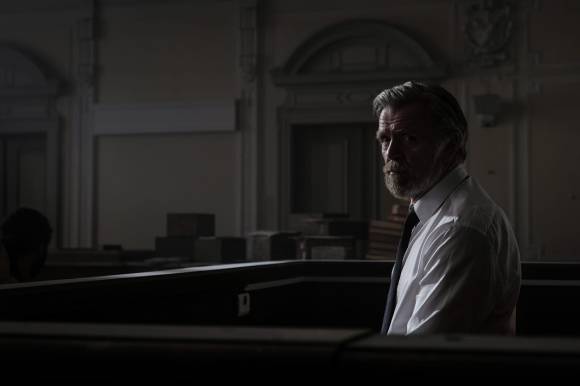 The year 2022 was also successful for Slovenian minority coproductions: Small Body directed by Laura Samani and produced by Nefertiti Film (Italy) in coproduction with Vertigo, Tomsa Films (France) and RAI Cinema (Italy); The Happiest Man in the World directed by Teona Strugar Mitevska and produced by Sisters and Brother Mitevski in coproduction with Entre chien et loup, Vertigo, Frau Film, Terminal 3, SCCA/PRO.BA; Pink Moon directed by Floor van der Meulen and produced by Kepler Films in coproduction with Tramal films, Nefertiti Film; and Safe Place directed by Juraj Lerotić and produced by Pipser (HR) in coproduction with December.
The year 2022 was also successful for Slovenian minority coproductions: Small Body directed by Laura Samani and produced by Nefertiti Film (Italy) in coproduction with Vertigo, Tomsa Films (France) and RAI Cinema (Italy); The Happiest Man in the World directed by Teona Strugar Mitevska and produced by Sisters and Brother Mitevski in coproduction with Entre chien et loup, Vertigo, Frau Film, Terminal 3, SCCA/PRO.BA; Pink Moon directed by Floor van der Meulen and produced by Kepler Films in coproduction with Tramal films, Nefertiti Film; and Safe Place directed by Juraj Lerotić and produced by Pipser (HR) in coproduction with December.
Actor Timon Šturbej was selected to be among 2022 European Shooting Stars at the Berlin IFF.
The leading position among distributors in 2022 belongs again to Karantanija Cinemas with 43% admissions share, followed by Blitz Film & Video Distribution (33%), Fivia (8%), Continental Film (8%), Cinemania Group (6%) and Demiurg (2%).
Most of these Slovenian distributors release mostly commercial films from major Hollywood studios such as Warner Bros, 20th Century Fox, Universal and Paramount. Karanatnija Cinemas won its leading position mostly due to UIP titles, Continental (Sony/Columbia) manages distribution from Croatia, while Blitz Film & Video Distribution (WB, FOX) is also strongly connected to its mother company in Croatia.
Smaller Slovenian distribution companies, which distribute independent, domestic and European films, are Fivia, Cinemania Group and Demiurg. They, especially Demiurg, are mostly focused on art house cinemas. In 2022 their admissions share increased to 16% from 12% in 2021.
VOD PLATFORMS AND ONLINE DISTRIBUTION
After the pandemic, distributors continued to show films on online platforms, additionally to the cinema release. Both the 25th Festival of Slovenian Film Portorož and the 33rd Ljubljana IFF additionally offer online screenings, while being held as in-person events.
The Slovenian Film Database still enables online viewing of a selection of Slovenian films on its platform, some of them free of charge.
The common VOD platform online.artkinomreza.si, whose implementation had been started in 2020 by the leading art house cinema Kinodvor along with the members of the Slovenian Art Cinema Association, is successfully operating. Nineteen art house cinemas, including Kinodvor, are using this platform for their online screenings.
Additionally to the existing S-VOD platform VOYO (produced by Pro plus) and AVOD platform 365 (produced by RTV Slovenija), Planet Group enabled a new AVOD platform Planeteka.
EXHIBITION AND BOX OFFICE
Slovenian cinema admissions are usually around 2.5 m and generate around 12 m EUR per year. In 2022 the numbers climbed back to that average, despite an approximately 70% drop in 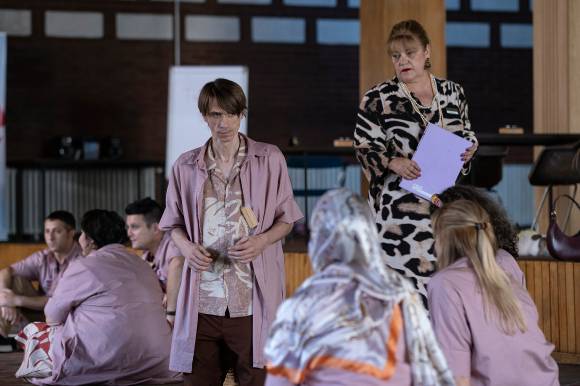 the past two years.
the past two years.
There are around 50 operating cinemas with 106 screens (101 among them digital), and the average ticket price is around 6.2 EUR.
Most of the Slovenian attendance is generated by multiplexes in bigger cities, owned by Kolosej Kinematografi and by the multiplex chain Cineplexx. While Cineplexx operates six multiplexes in Maribor, Celje, Kranj, Koper, Murska Sobota and Novo mesto, Kolosej Kinematografi runs the biggest and the only multiplex in the capital city of Ljubljana (plus a one screen cinema theatre Komuna). Maribor, the second largest Slovenian city, has two multiplexes: Maribox (operated by Projektor) and Cineplexx.
Kolosej Ljubljana, the first and the largest Slovenian cineplex, which started operating in 2001, was sold at auction on 5 September 2022 for 6.4 m EUR.
Other cinema theatres try to balance commercial and art house films. Most of them are members of the Slovenian Art Cinema Asociation, which currently has 28 active members. The leading art house cinema is Kinodvor, whose director is Metka Dariš.
The 2022 admissions significantly increased to 1,844,430 (compared to 725,612 in 2021) and the total box office recovered to 11.507 m EUR (compared to 4.074 m in 2021), almost to the results compared to past non-COVID years’ average.
The top titles on the overall 2021 chart were US action hits and animated films, this year joined by some domestic titles. The leading position belongs to Top Gun: Maverick (with 151,114 admissions and 1,065,572 EUR gross), followed by Minions: The Rise of Gru (with 126,851 admissions and 852,370 EUR gross) and At Hostar 2‰ (with 114,558 admissions and 759,428 EUR gross). On the other positions in the first ten we find another two US blockbusters (Avatar: The Way of Water, Jurassic World: Dominion), family and/or animated films (The Bad Guys, Sonic the Hedgehog 2, Clifford the Big Red Dog), and Slovenian coming-of-age films Gaja's World 2 and Beanie.
The total 2022 admissions for domestic films highly increased to 315,084 (compared to 16,867 in 2021), and the total gross was 1,659,316 EUR (compared to 54,332 EUR in 2021), which represents a record breaking 17% share in admissions and 14% share in the box office since Slovenia’s independence.
The top domestic titles in 2022 include At Hostar 2‰ directed by Luka Marčetič and produced by Pro plus, with 114,558 admissions and 759,428 EUR gross, followed by Gaja's World - This Is My Planet!, directed by Peter Bratuša and produced by Felina Film, with 75,998 admissions and 380,368 EUR gross, and Beanie directed by Slobodan Maksimović and produced by Senca Studio in coproduction with Wady Films, Objectif, Studio Dim, RTV Slovenija, RTVS, with 58,923 admissions and 278,411,428 EUR gross.
 The Slovenian film with the most admissions since 1991 is still At Hostar / Pr’ Hostar directed by Luka Marčetić, produced by Kerlc Film in coproduction with Iridum Film, with 211,604 admissions, followed by Going Our Way / Gremo mi po svoje (2010) directed by Miha Hočevar, produced by Vertigo/Emotionfilm in coproduction with RTV Slovenija, with 205,439 admissions.
The Slovenian film with the most admissions since 1991 is still At Hostar / Pr’ Hostar directed by Luka Marčetić, produced by Kerlc Film in coproduction with Iridum Film, with 211,604 admissions, followed by Going Our Way / Gremo mi po svoje (2010) directed by Miha Hočevar, produced by Vertigo/Emotionfilm in coproduction with RTV Slovenija, with 205,439 admissions.
The main art event in Slovenia is LIFFe, the Ljubljana IFF, organised by Cankarjev dom. A total of 92 feature and 17 short films were screened (and some of them also presented online) at its 33rd edition, which was held 9 - 20 November 2022.
GRANTS AND NEW LEGISLATION
The main film institution in Slovenia is the Slovenian Film Centre (SFC), a public agency established in 2010 replacing the Slovenian Film Fund. Its goal is to encourage creativity by providing suitable conditions for audiovisual activities.
The SFC supports national film production, postproduction, distribution and film festivals. In theory, its funding sources should come from the state budget, the agency’s own income, partnership with international organisations, donations and sponsorships. In practice, the majority of its funding is in the form of a subsidy from the Ministry of Culture, with the amount depending on the annual budget of the country.
The managing director of the SFC is Nataša Bučar, reappointed in November 2021 for the next five years until 2026. She and her team are trying to follow the four-year national strategy, announced in November 2019, in spite of the fact that the national programme for culture is still pending.
The vision of the SFC and its general strategic goals in the coming period from 2020 to 2024 entail the implementation of a transparent and modern system to ensure a sustainable, functional and stable film environment.
Since its launch, the SFC has been deeply involved in the production of domestic films. Other sources of support originate from the national television RTV Slovenija, coproductions, services backed by the state and provided by FS Viba film studio in the form of technical assistance, from international film funds and institutions.
In 2022 the SFC received 6.667 m EUR for running costs, film funding and other activities (6.620 m EUR in 2021). The goal, announced in 2018, that the annual budget for film production should gradually increase and reach 11 m EUR by 2022, has not been achieved, but the forecast is optimistic while reportedly 8.785 m EUR is secured for 2023.
In 2021 the SFC announced 13 public tenders (which is the same as in 2021) and awarded grants totalling 5.682 m EUR (compared to 6.319 m EUR in 2021).
 A total of 5.334 m EUR (compared to 6.045 m EUR in 2021) went to film production (feature films, documentaries, animated films, including development support). A total of 347,581 EUR (compared to 273,525 EUR in 2021) was allocated for festivals, film education, international promotion and professional associations.
A total of 5.334 m EUR (compared to 6.045 m EUR in 2021) went to film production (feature films, documentaries, animated films, including development support). A total of 347,581 EUR (compared to 273,525 EUR in 2021) was allocated for festivals, film education, international promotion and professional associations.
The restoration of Slovenian classics will continue in 2023.
On 8 June 2022 Asta Vrečko was appointed as the new Minister of Culture of Slovenia, replacing Vasko Simoniti, appointed on 13 March 2020. A development-oriented and inclusive culture policy, an overhaul of media legislation and of the status of the self-employed, as well as systemic investment in culture were announced as her first priorities.
TV
In the last few years, according to the Law on the Slovenian Film Centre, the public broadcaster RTV Slovenija has been obliged to invest in independent film and AV projects.
The national television RTV Slovenija and the leading commercial TV channel Pro plus still play a key role in the domestic production, partly joined by Planet Group.
RTV Slovenija makes up to five feature and documentary films per year, and it acts as a regular coproducer for domestic films. In 2022 RTV Slovenija continued shooting its own production, the crime series Cases of Inspector Vrenko / Primeri inšpektorja Vrenka directed by Slobodan Maksimović and Boris Jurjašević, and based on a series of novels by Tomaž Zupančič alias Avgust Demšar.
The strongest commercial television Pro plus continued to produce TV series and entertainment shows. The comic series Lotto Millionaire / Sekirca v med directed by Jaka Šuligoj, as well as the new seasons of other local reality and entertainments shows such as MasterChef Slovenija, Home Makeover / Delovna akcija, Food Truck / Kuhinja na kolesih, Restart, Slovenia / Štartaj, Slovenija, Kid Cooks / Mali šef Slovenije, The Bachelor / Sanjski moški and Farmer Wants a Wife / Ljubezen po domače were produced.
Pro plus also continued to produce domestic TV series for its SVOD platform VOYO: The Teacher / Gospod profesor directed by Boris Bezić and Tijana Zinajić, The Kitchen / Ja, Chef! 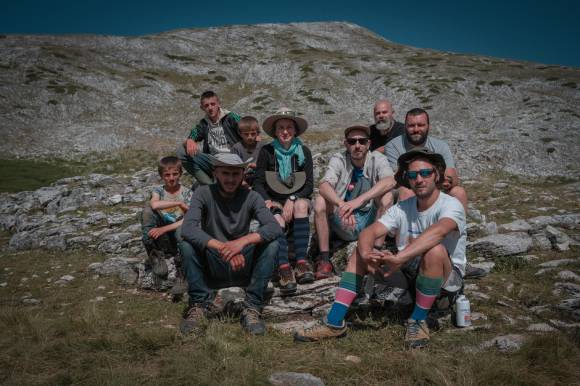 directed by Marko Naberšnik and Igor Gajič, and Horna dolna / Ta Hribom directed by Jaka Šuligoj.
directed by Marko Naberšnik and Igor Gajič, and Horna dolna / Ta Hribom directed by Jaka Šuligoj.
The leading commercial TV Pro plus with its five channels POP TV, KANAL A, KINO, BRIO and OTO, made its leading position even stronger with news, reality shows, local TV series, sport events and foreign programming. It is followed by the national television RTV Slovenija with its three national channels, and another commercial television, Planet Group, which is regaining its market share with its three channels. Other significant players are foreign cable TV channels Fox Group, Cas Media, HBO Max; TV3 medias, and several ex-Yugoslavian TV channels.
The prime time in Slovenian television is generally held by news (24 ur, Dnevnik), reality and entertainment shows (MasterChef, Farmer Wants a Wife, Love at First Sight, Who Wants to Be a Millionaire?, Fake News, V petek zvečer, Exatlon Slovenija, The Real Housewives Slovenija, Joker), and domestic fiction (drama TV series Cases of Inspector Vrenko).
In 2022 Pro plus remained the leading television. Pro plus had a prime time share of 45%, RTV Slovenija 17%, Planet Group 8%, TV3 Medias 1.0%, and other TV channels 29%.
CONTACTS:
SLOVENIAN FILM CENTRE
Miklošičeva 38
SI - 1000 Ljubljana
Phone: +386 (0)1 23 43 200
Fax: +386 (0)1 23 43 219
This email address is being protected from spambots. You need JavaScript enabled to view it.
www.sfc.si
SLOVENIA FILM COMMISSION
Miklošičeva 38
SI - 1000 Ljubljana
Phone: +386 (0)3 23 43 200
Fax: +386 (0)1 23 43 219
MINISTRY OF CULTURE OF REPUBLIC OF SLOVENIA
Maistrova ulica 10
SI - 1000 Ljubljana
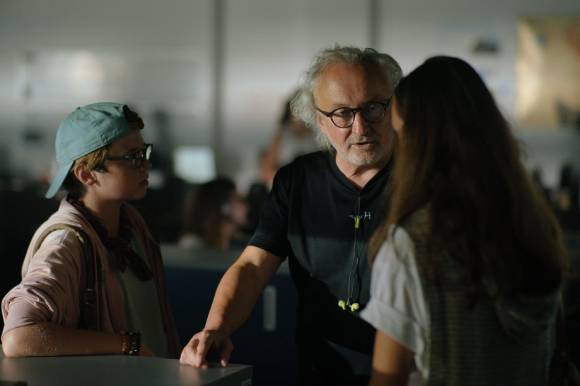 Phone: +386 (0)1 369 59 00
Phone: +386 (0)1 369 59 00
Fax: +386 (0)1 369 59 01
This email address is being protected from spambots. You need JavaScript enabled to view it.
www.mk.gov.si
FS VIBA
Stegne 5
SI - 1000 Ljubljana
Phone: + 386 (0)1 5132 402
Fax: + 386 (0)1 5132 550
This email address is being protected from spambots. You need JavaScript enabled to view it.
www.vibafilm.si
SLOVENIAN ART CINEMA ASOCIATION
Fancetova ulica 5
2380 Slovenj Gradec
This email address is being protected from spambots. You need JavaScript enabled to view it.
www.artkinomreza.si/
Report by Damijan Vinter (2023)
Sources: the Slovenian Film Centre, the Ministry of Culture, Fivia/Cenex



















